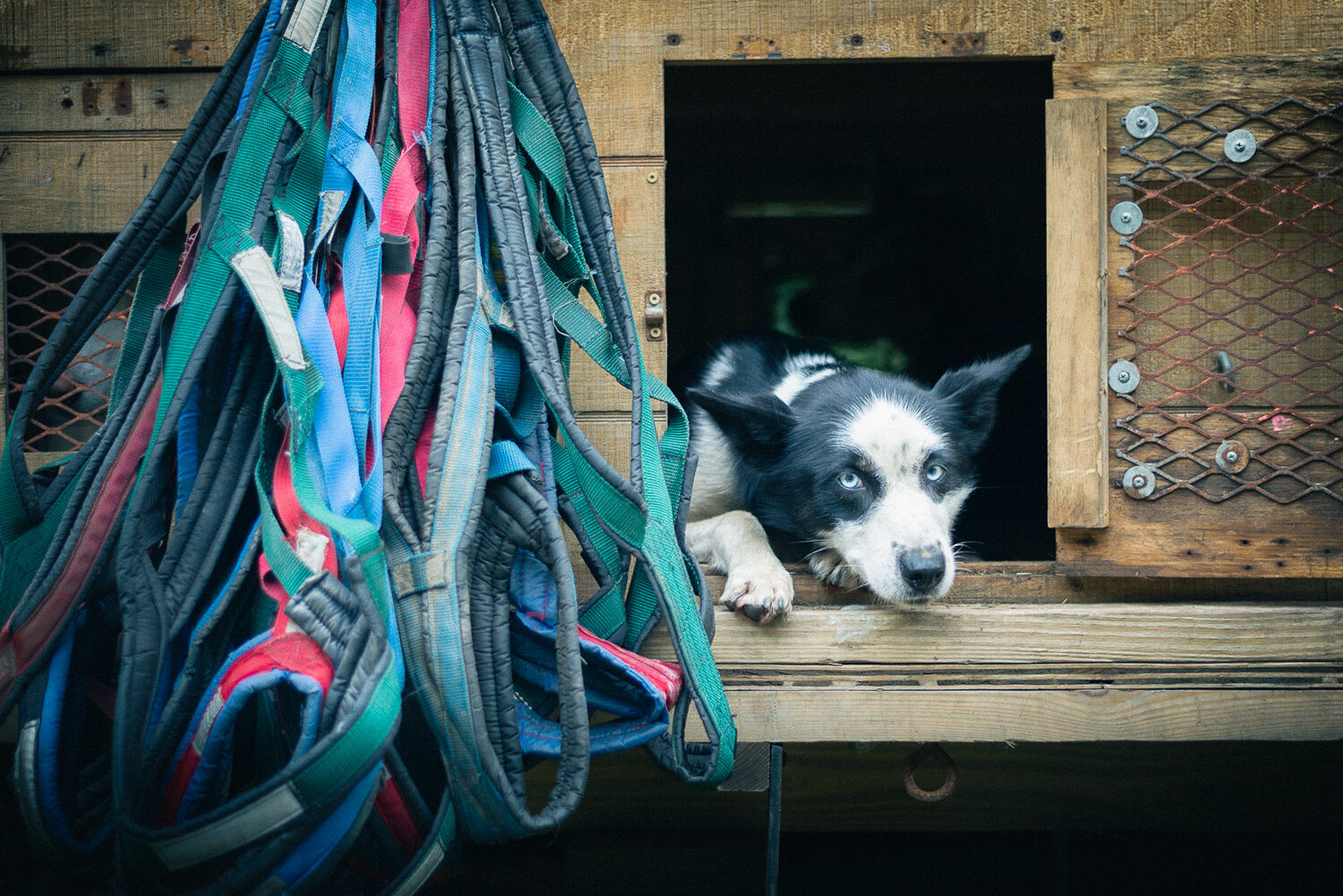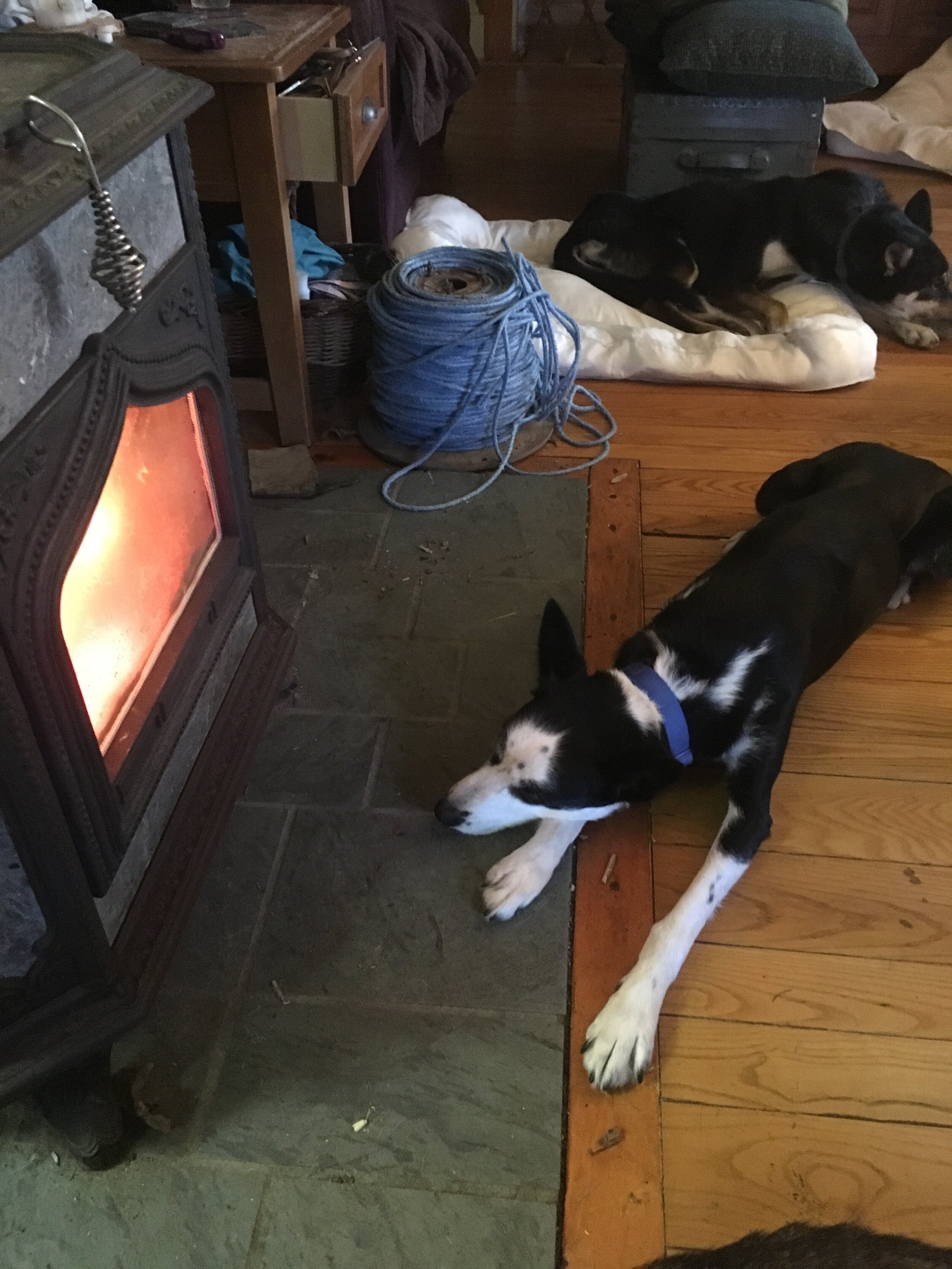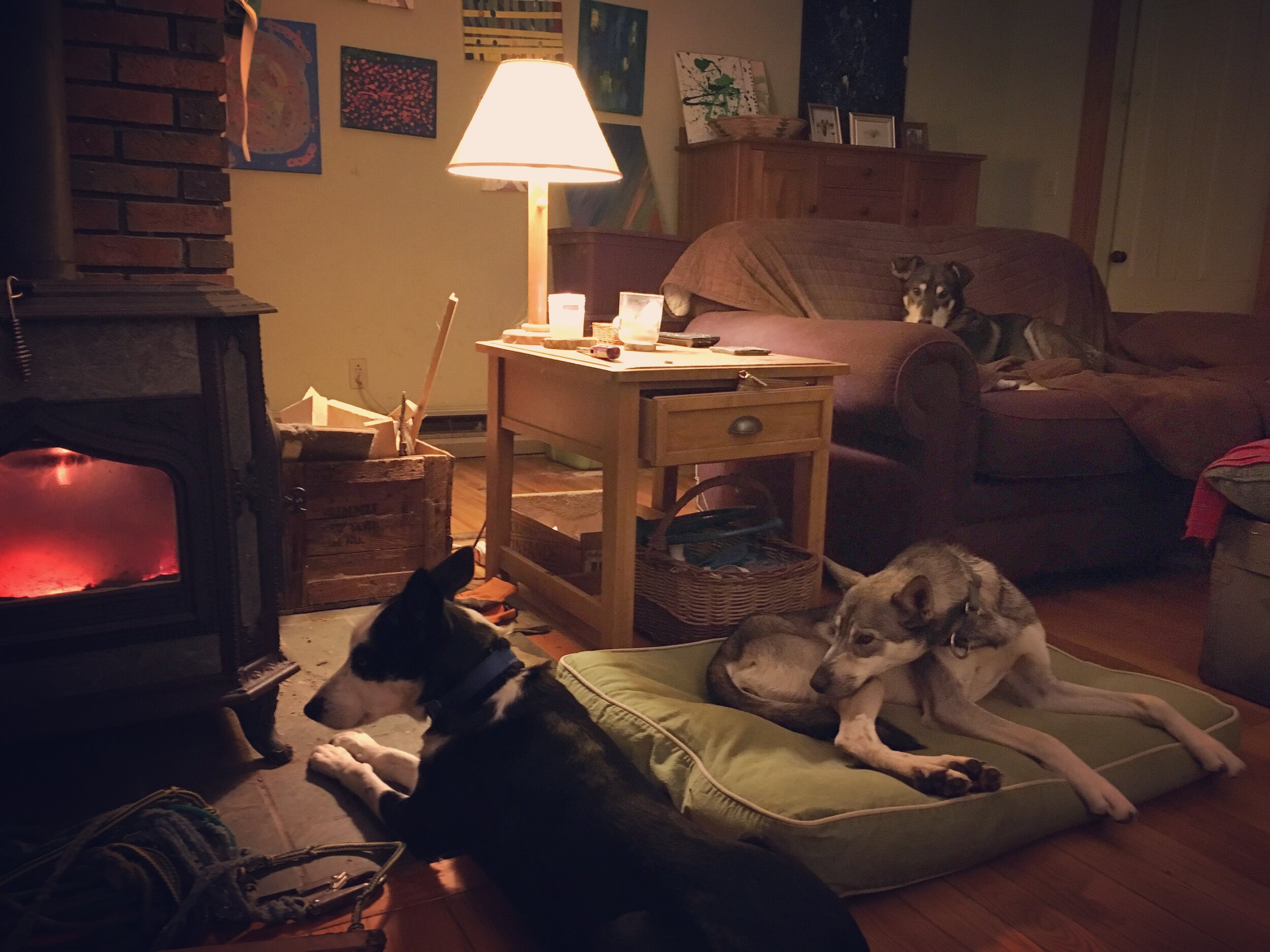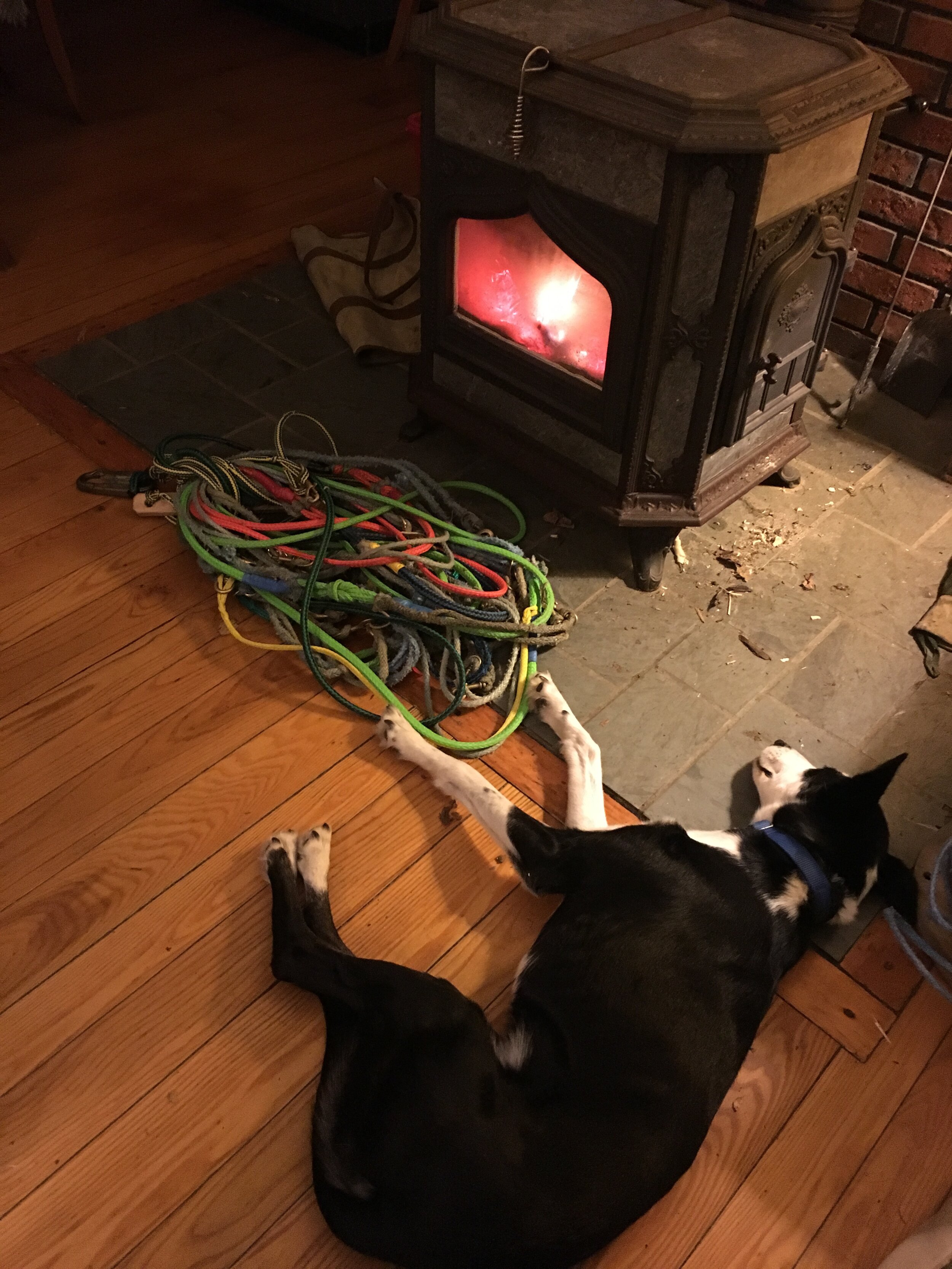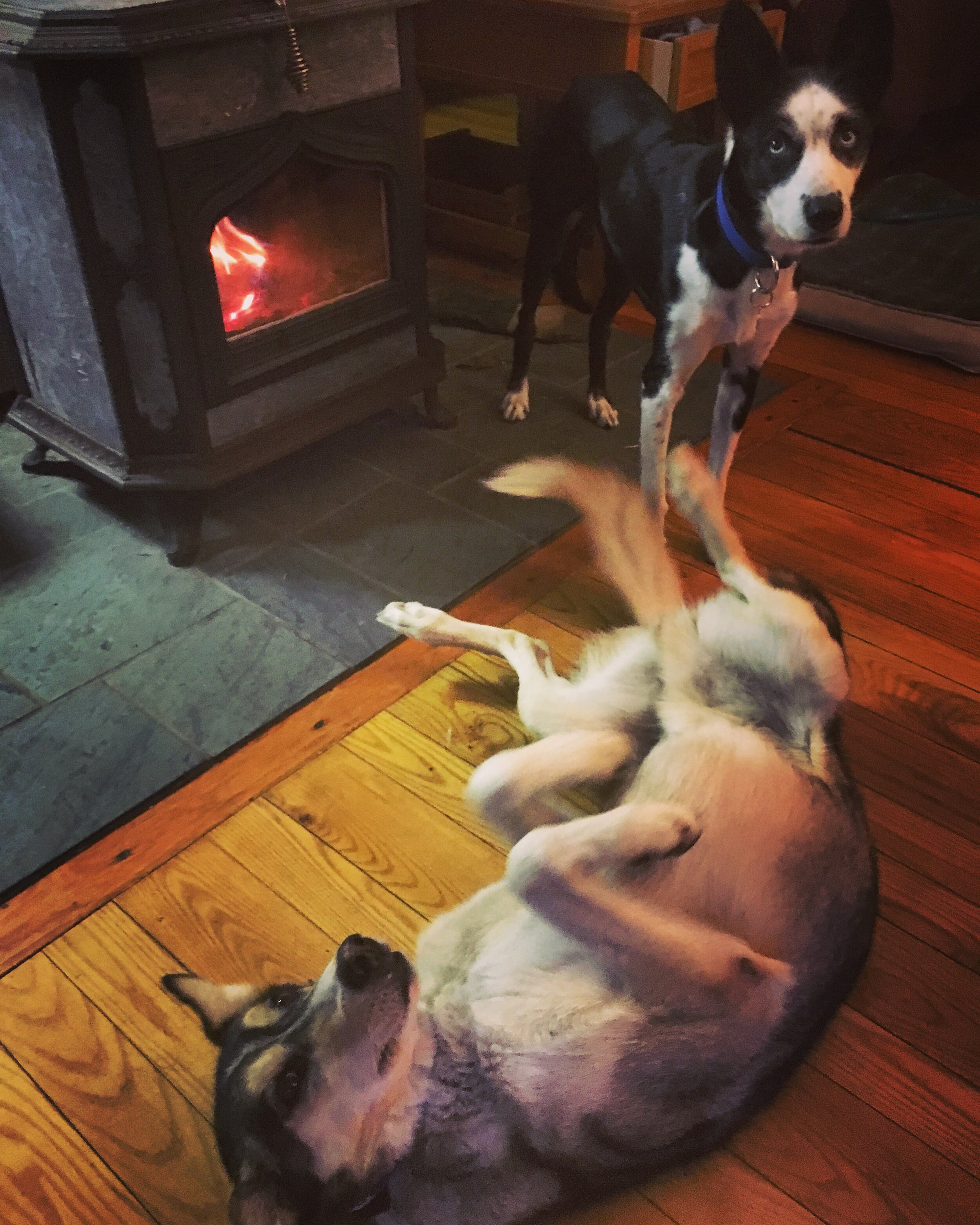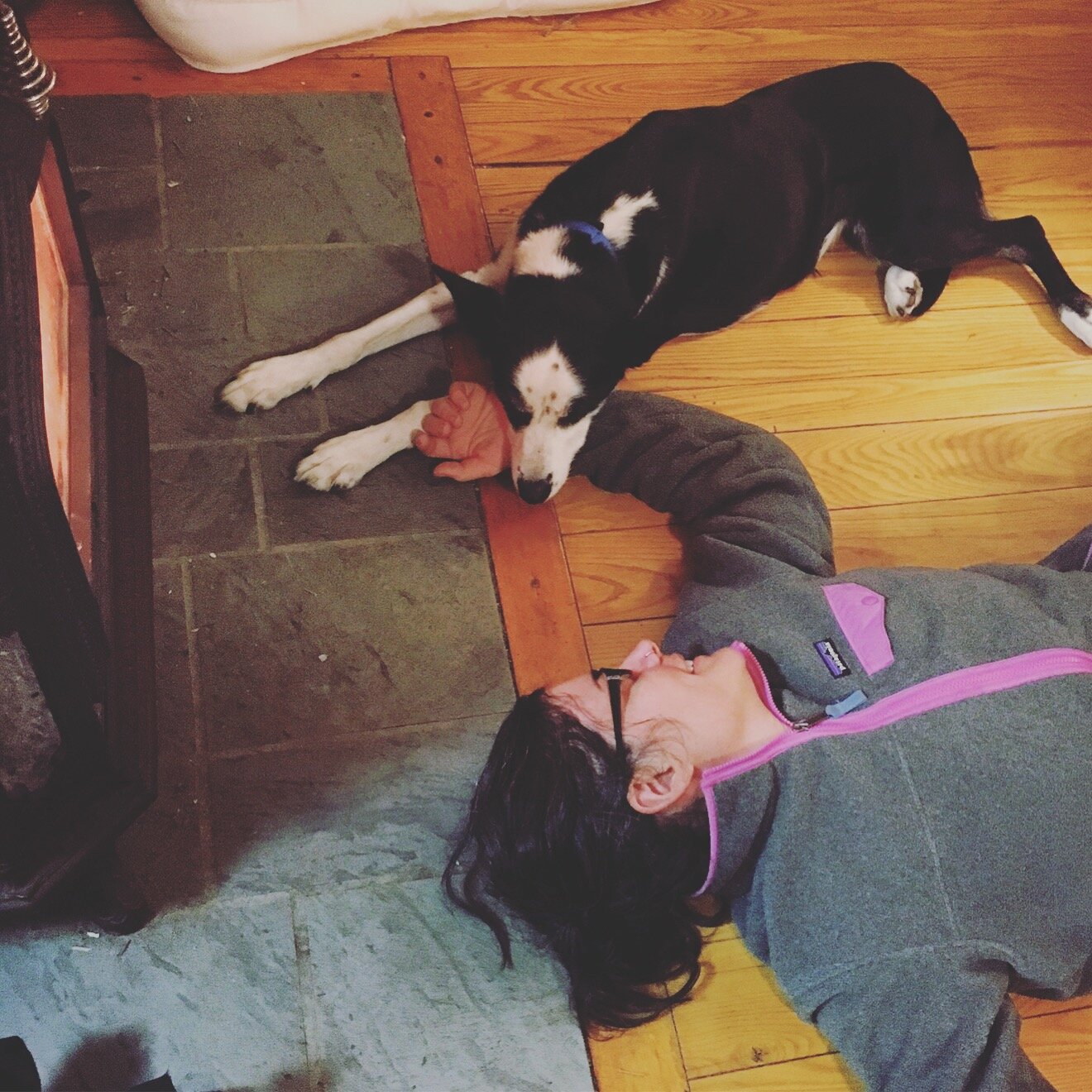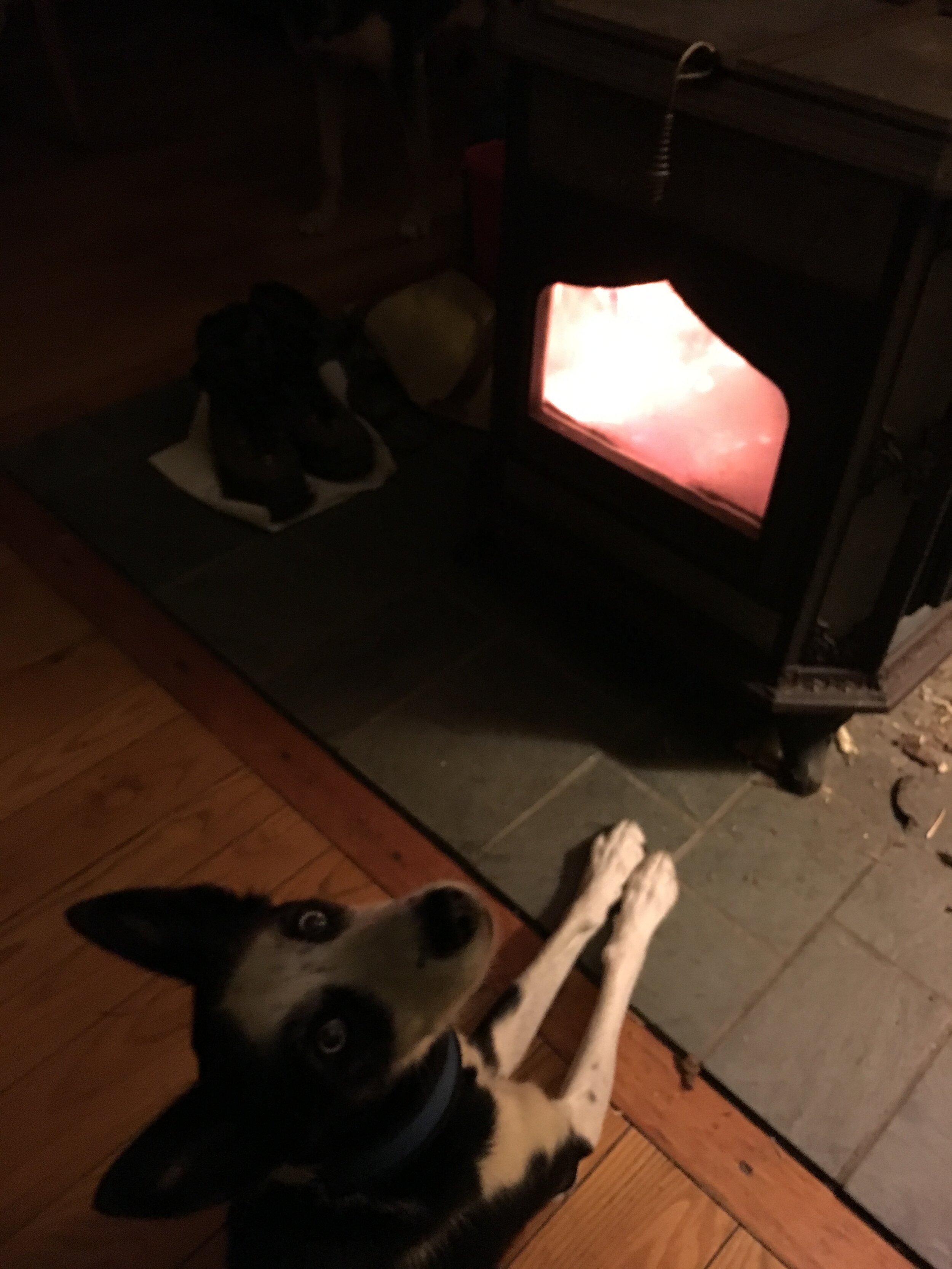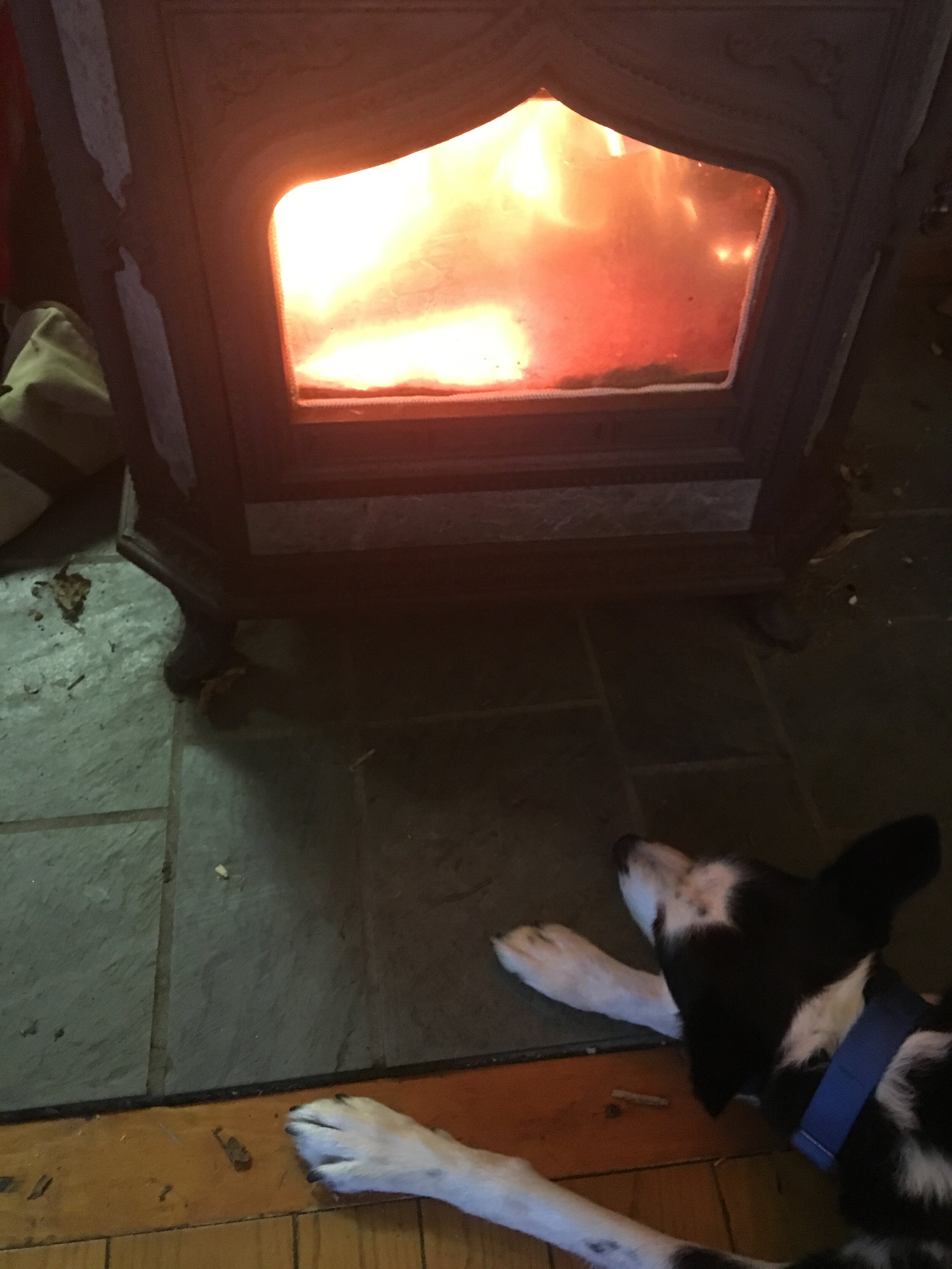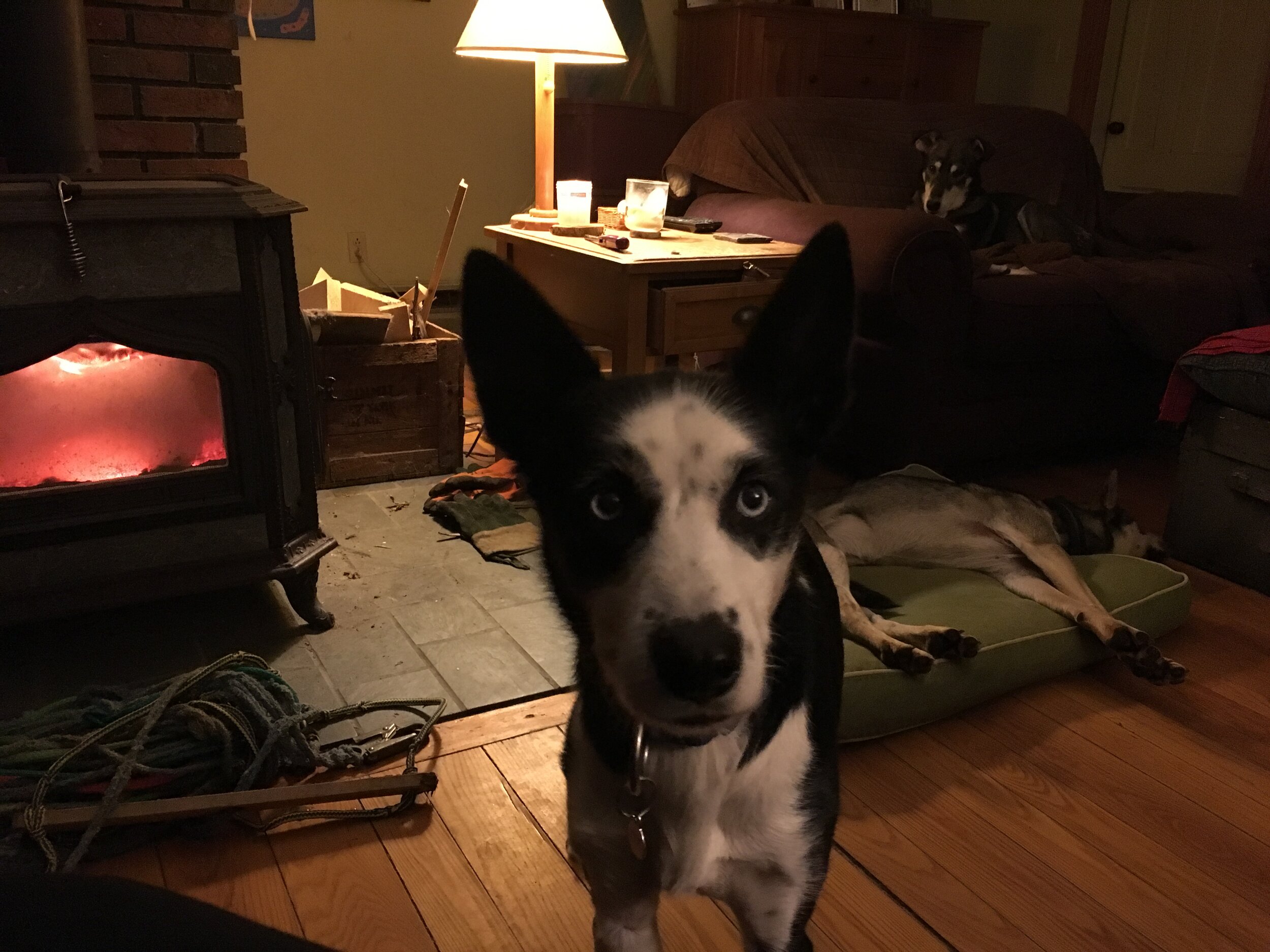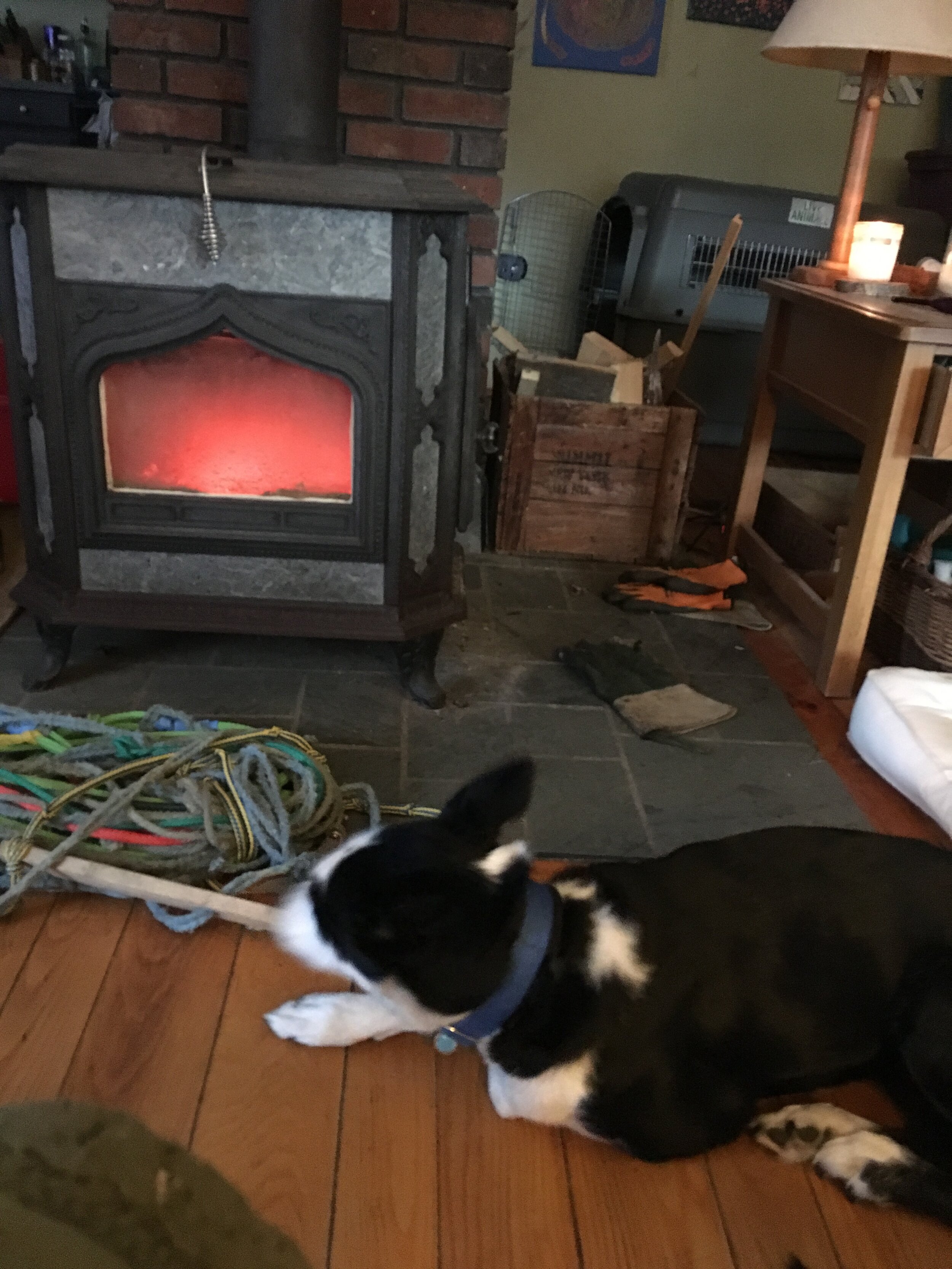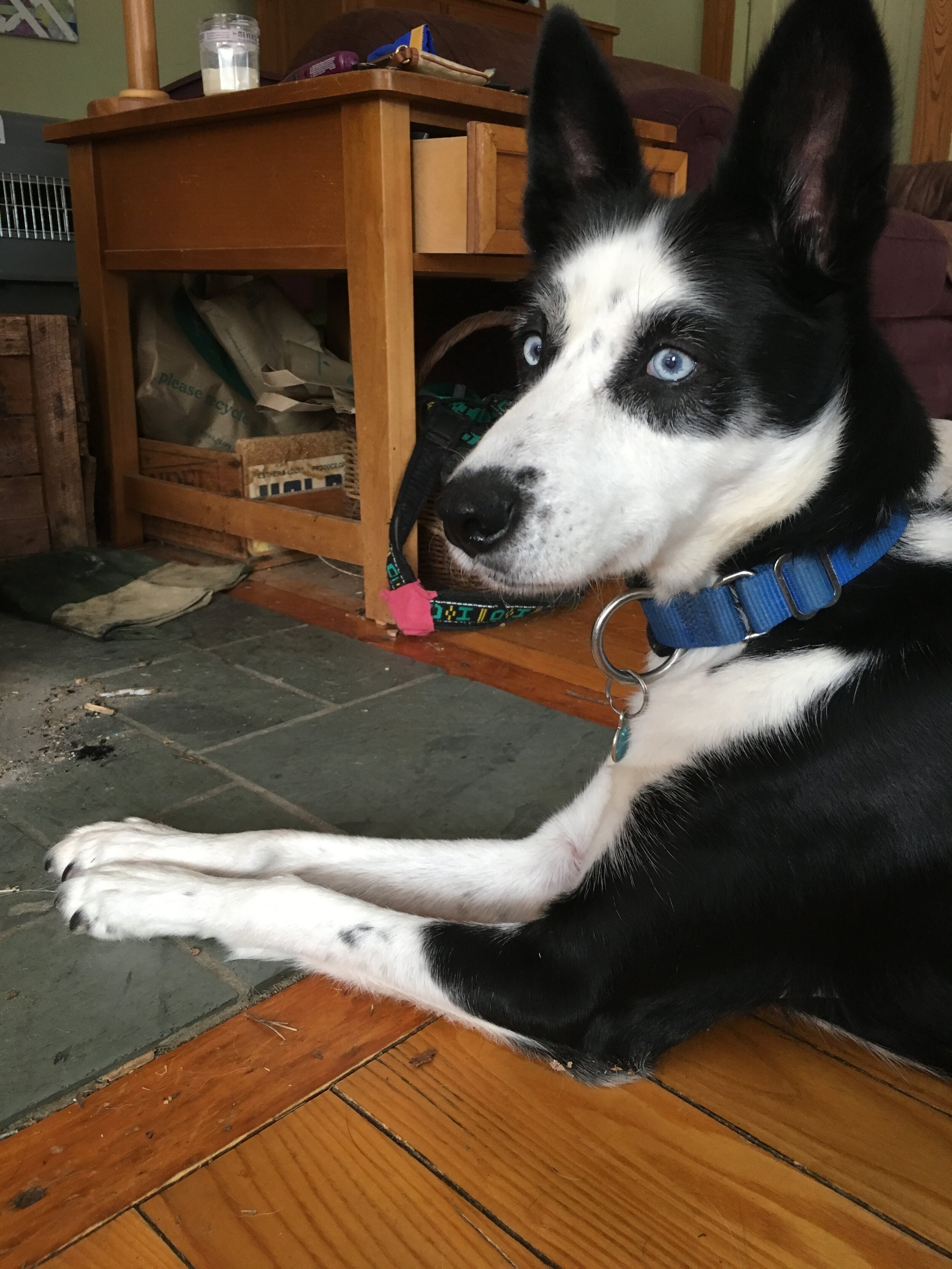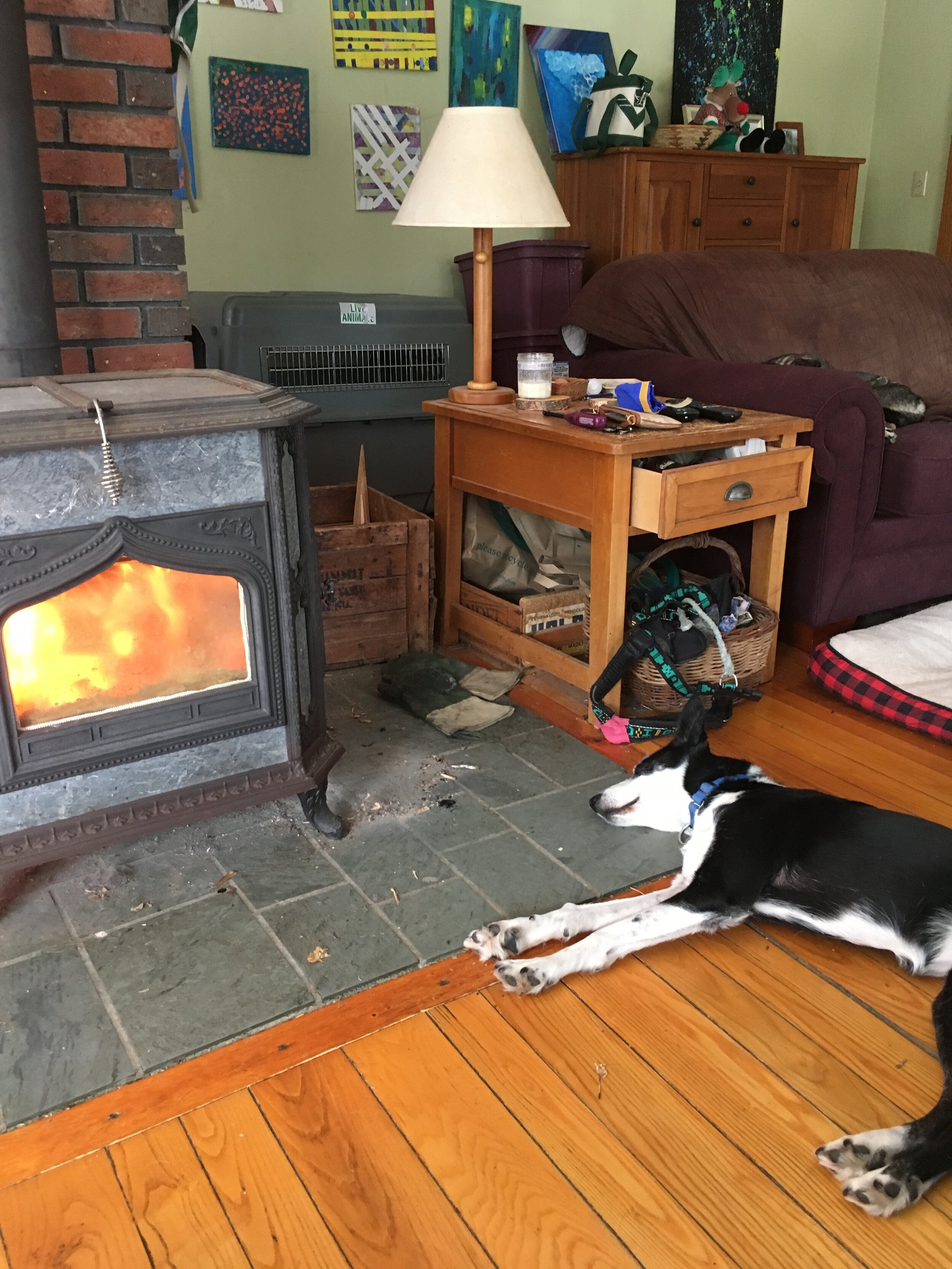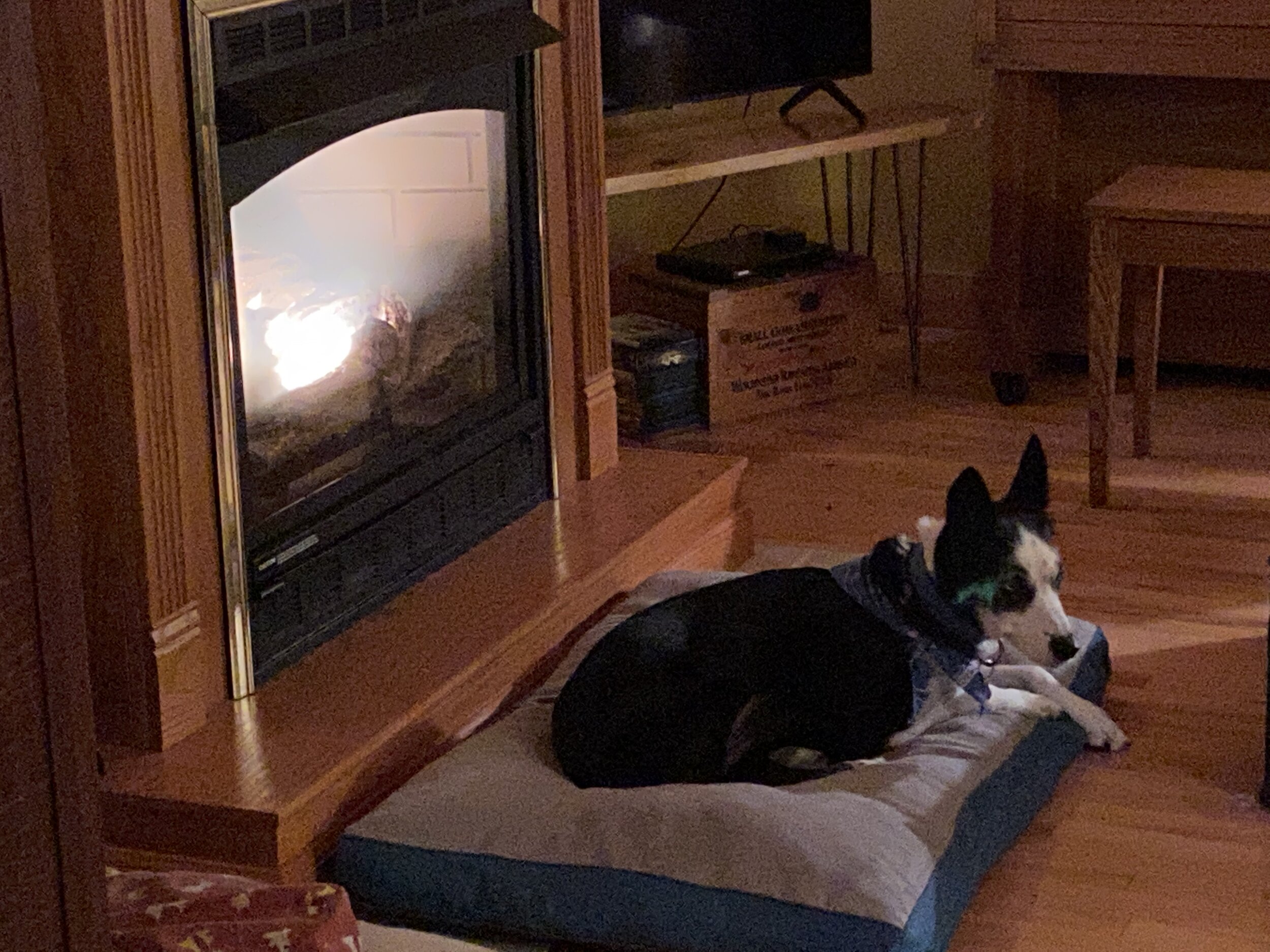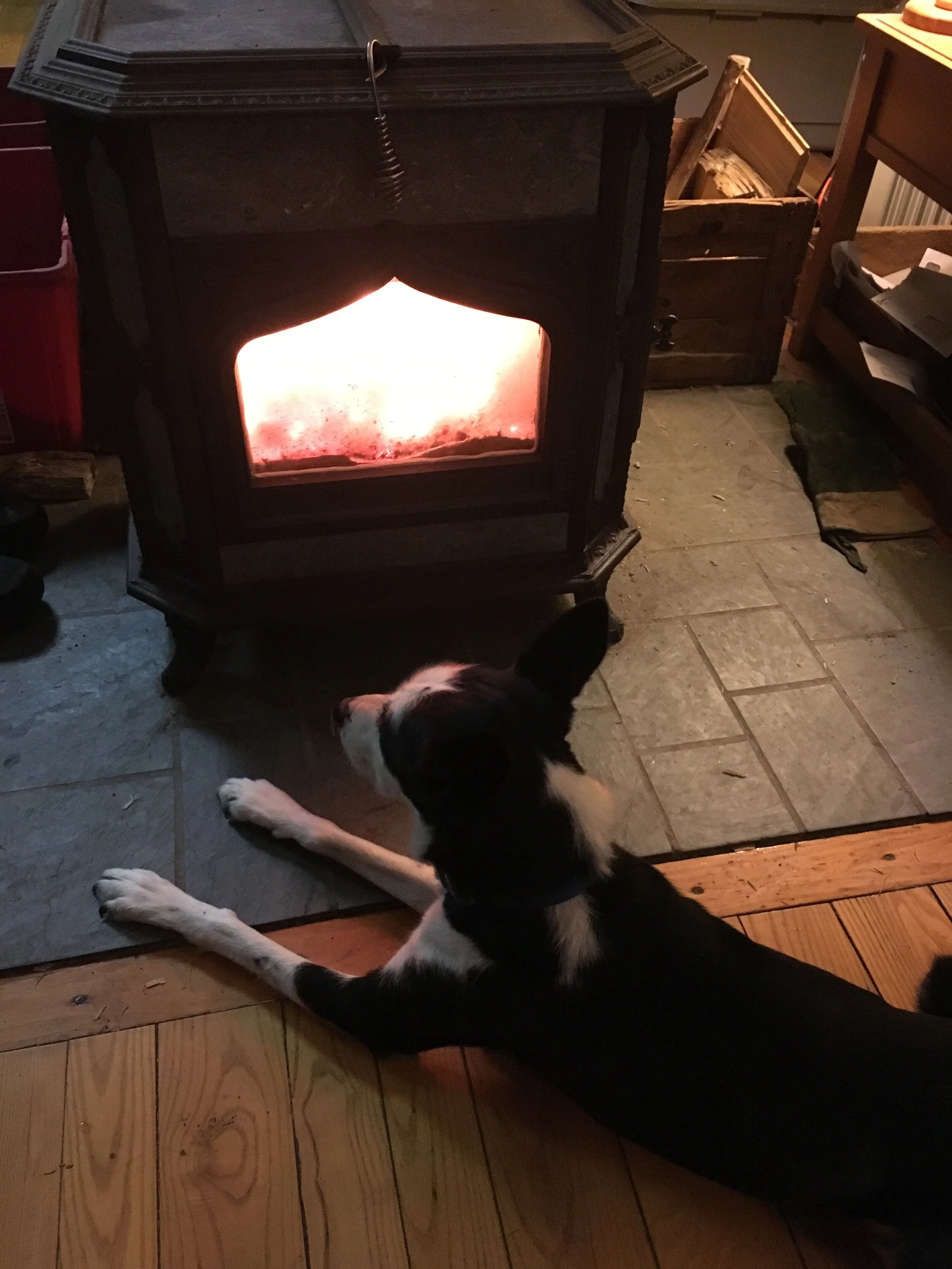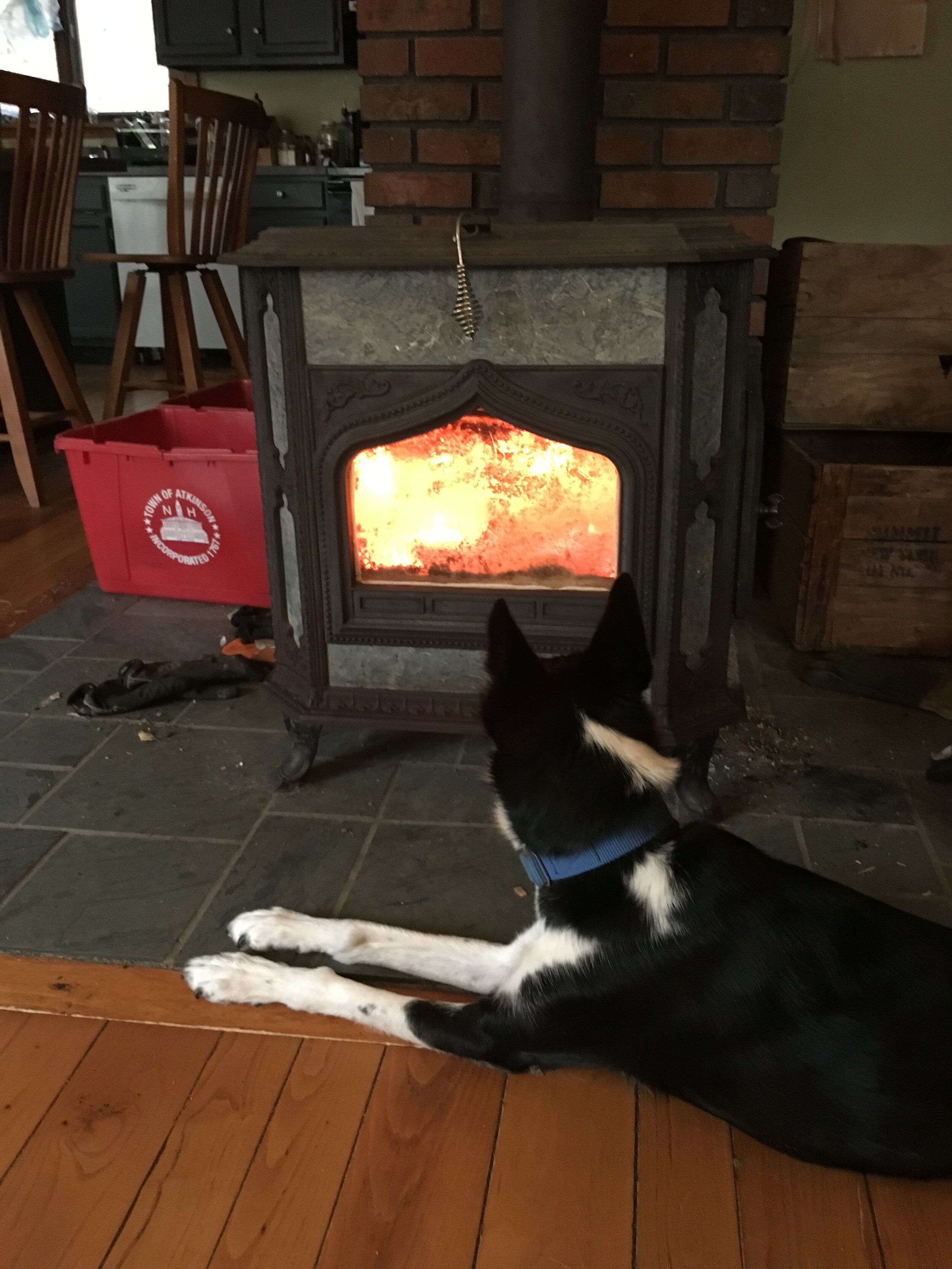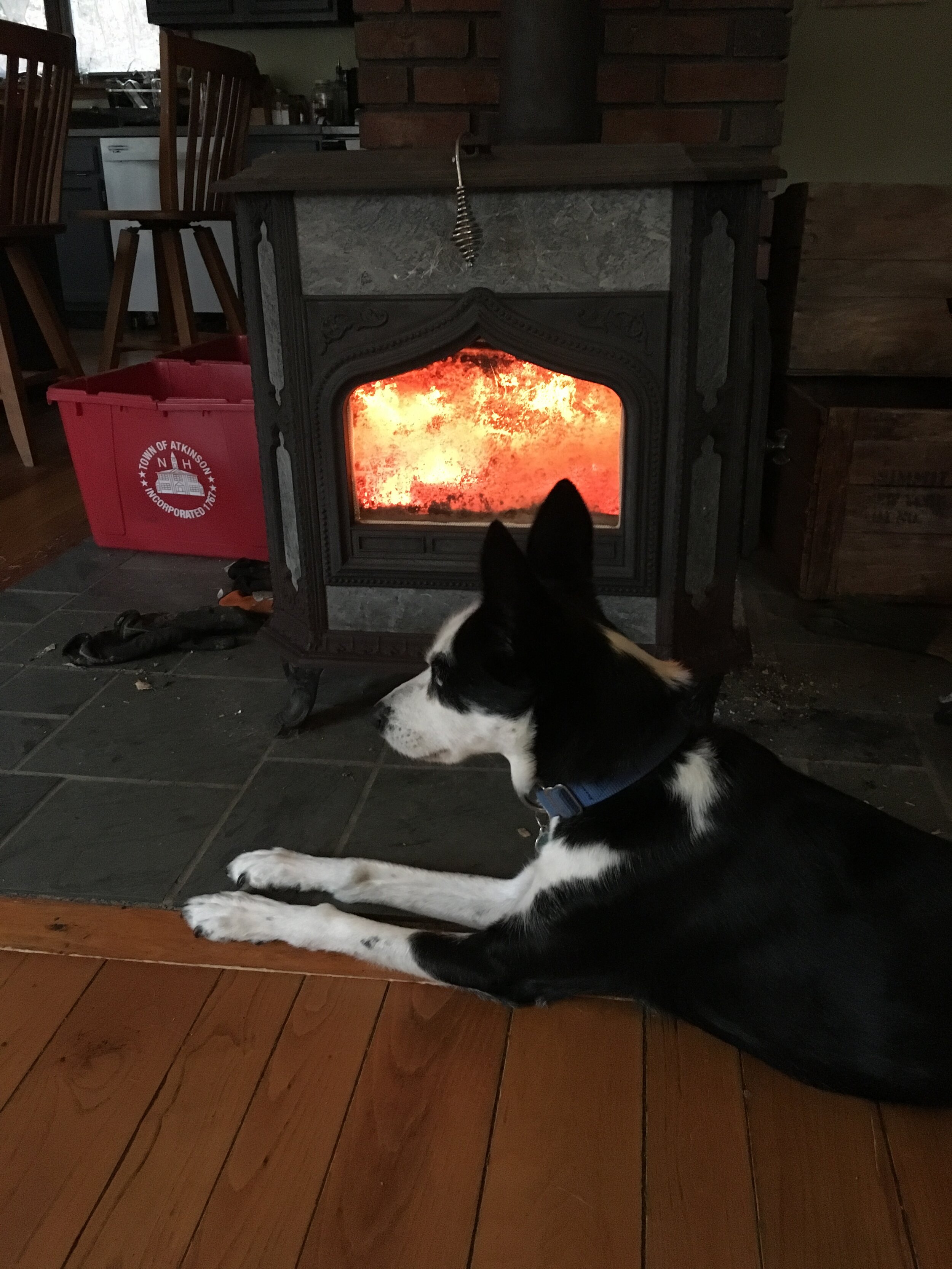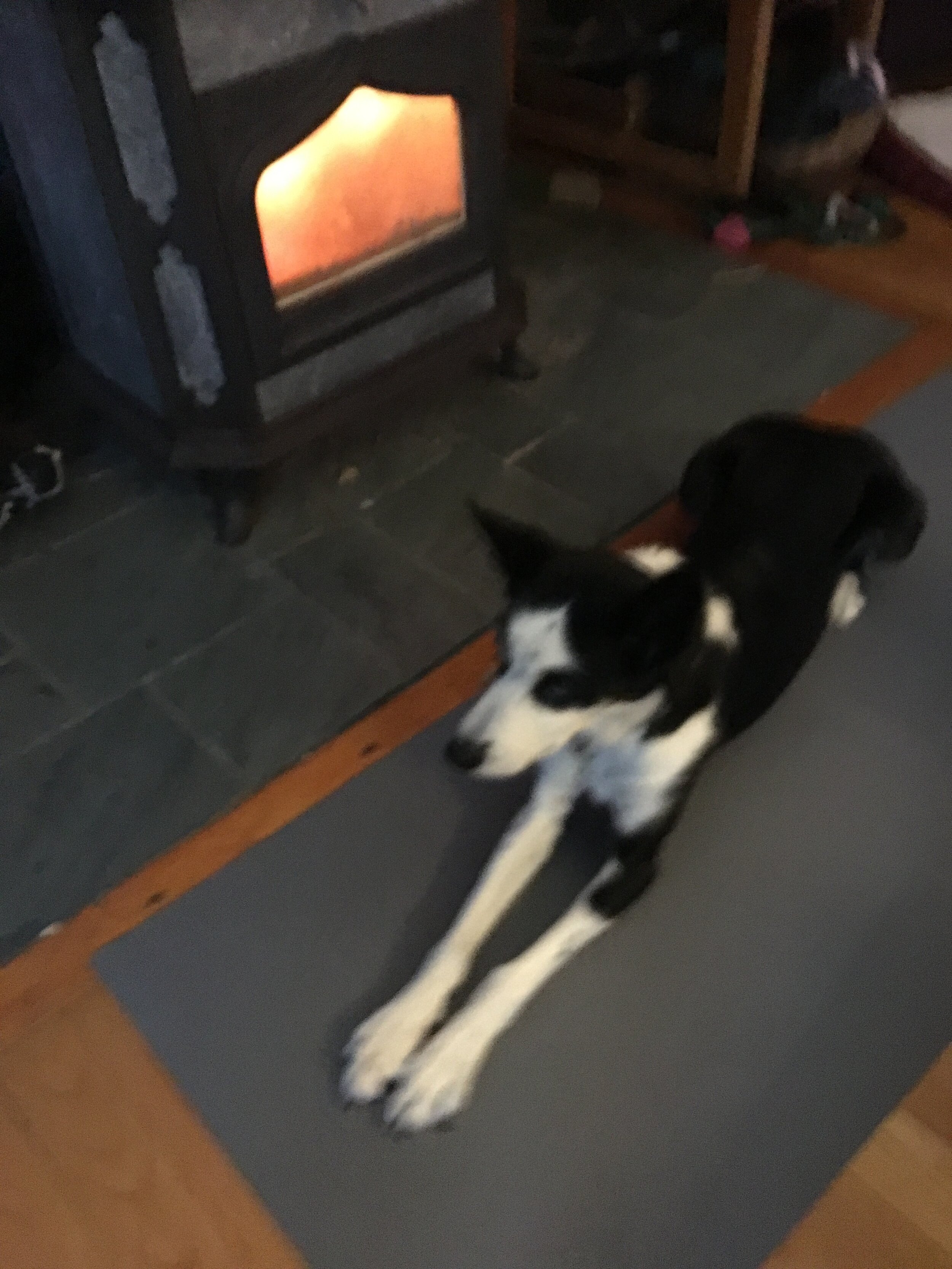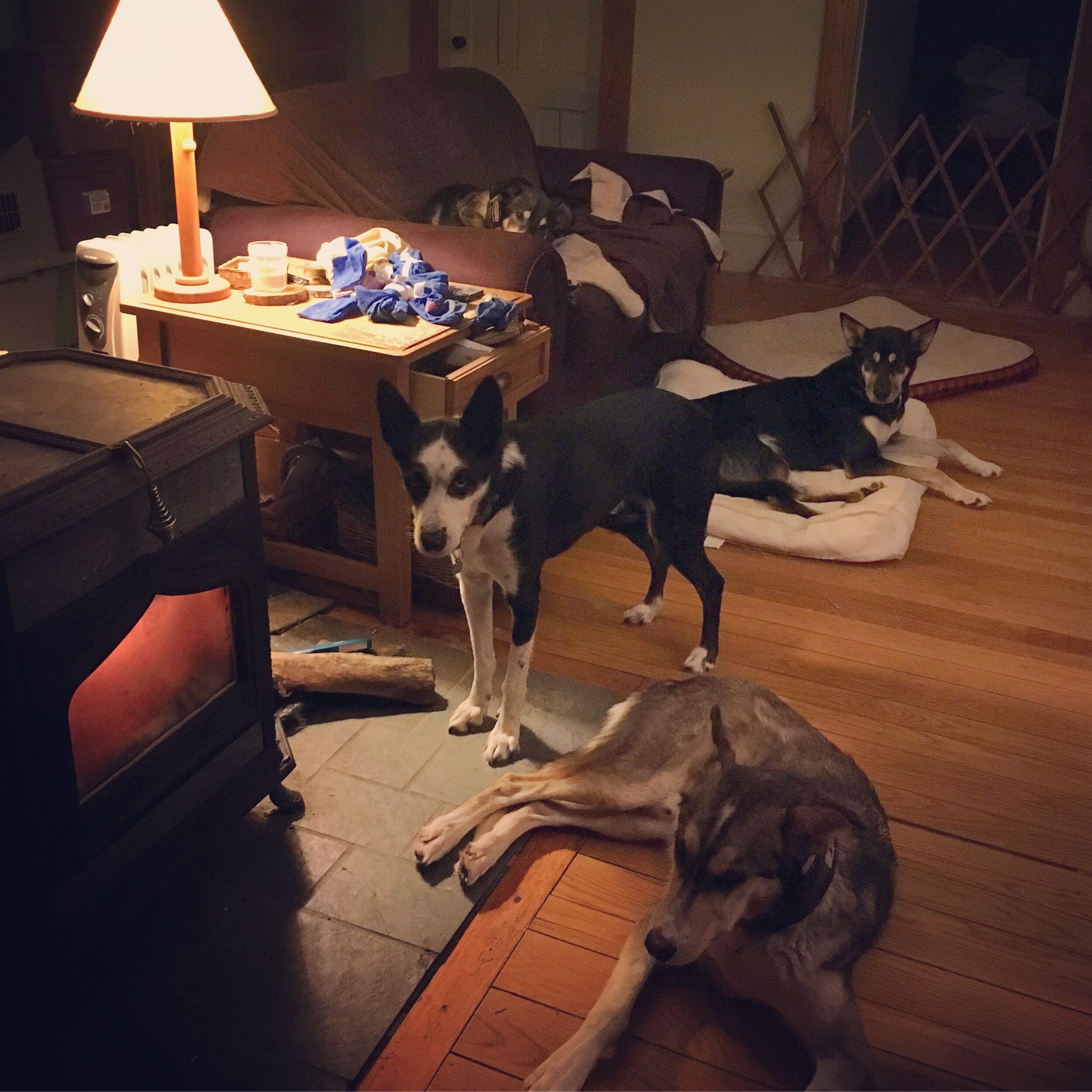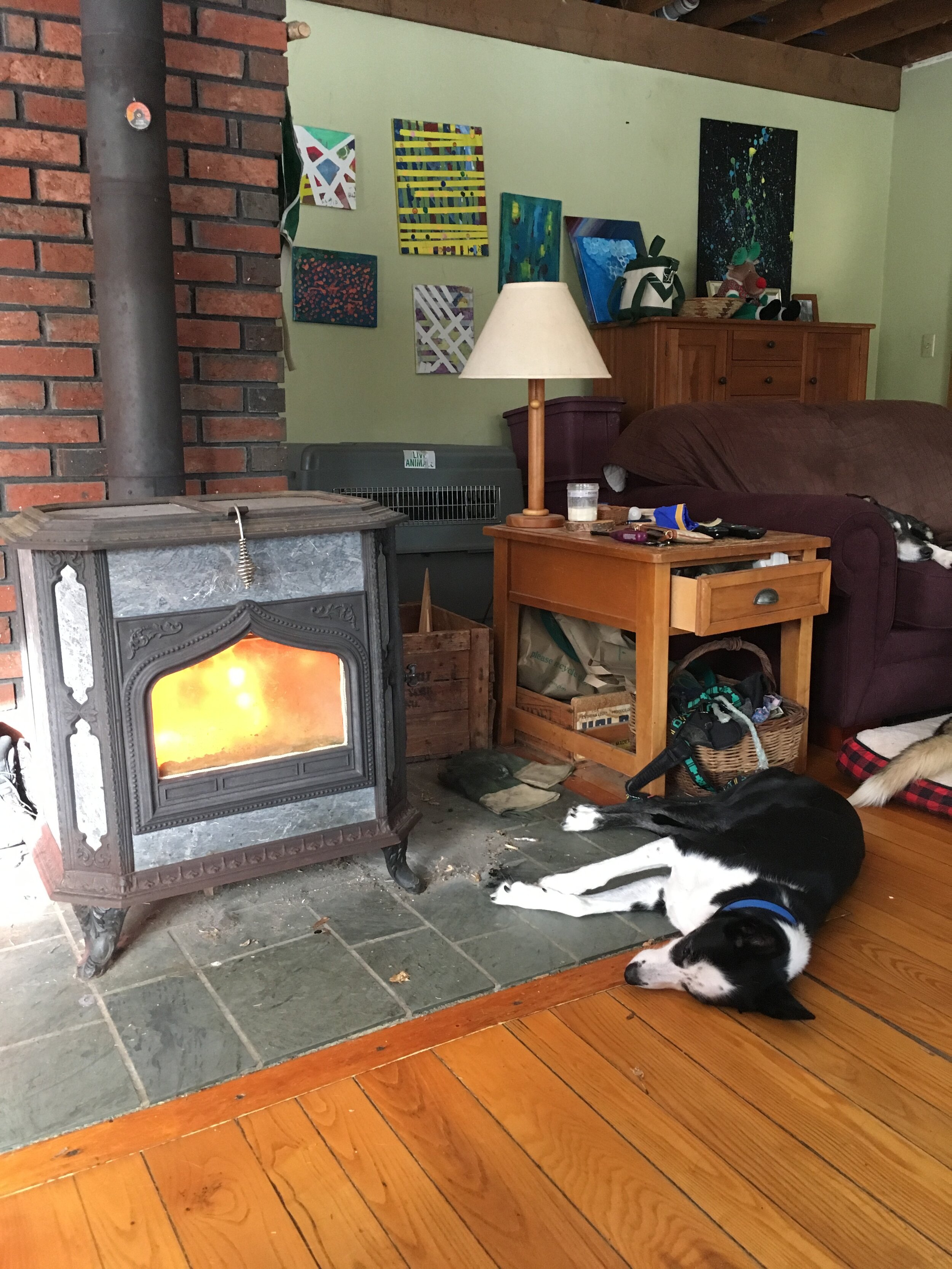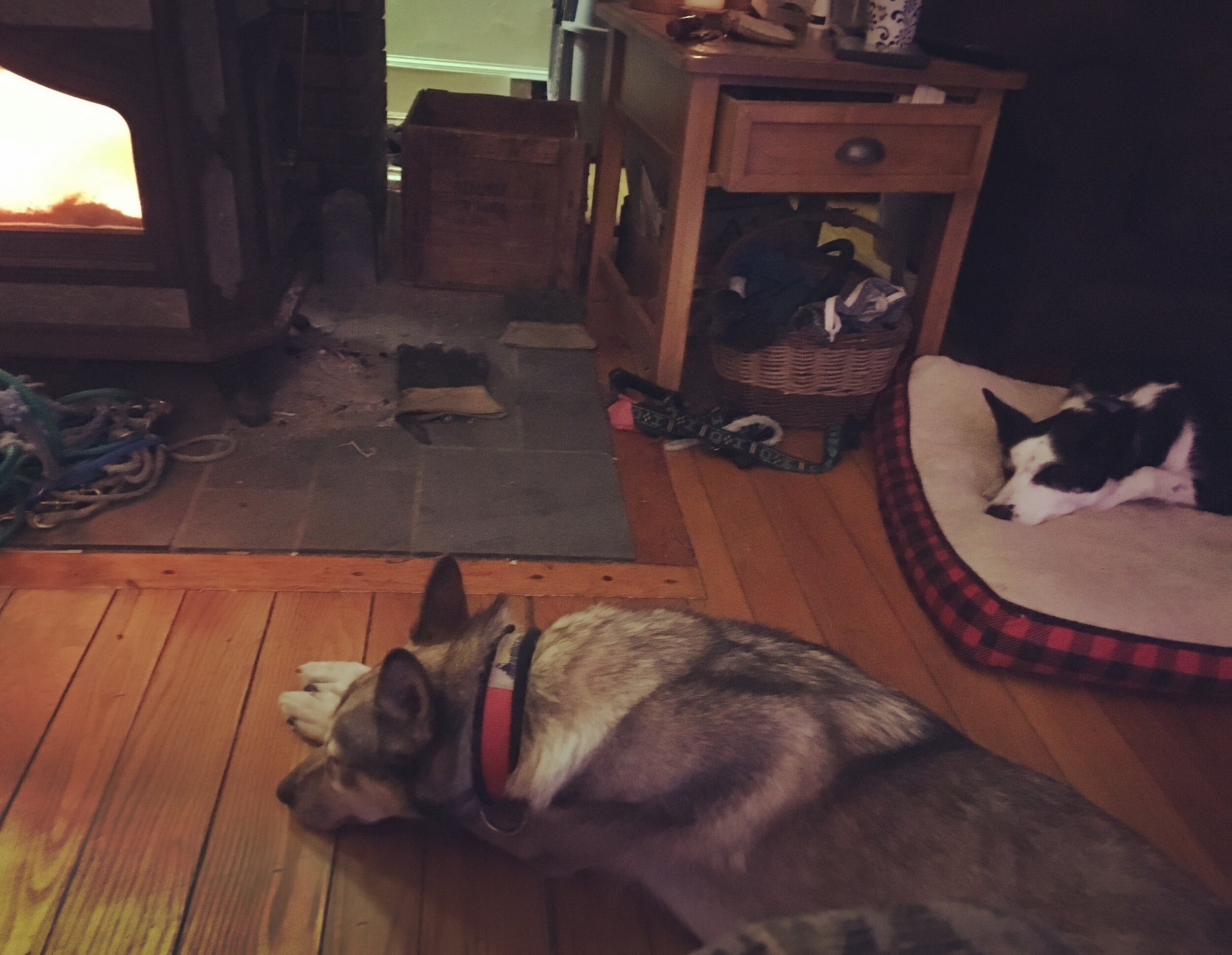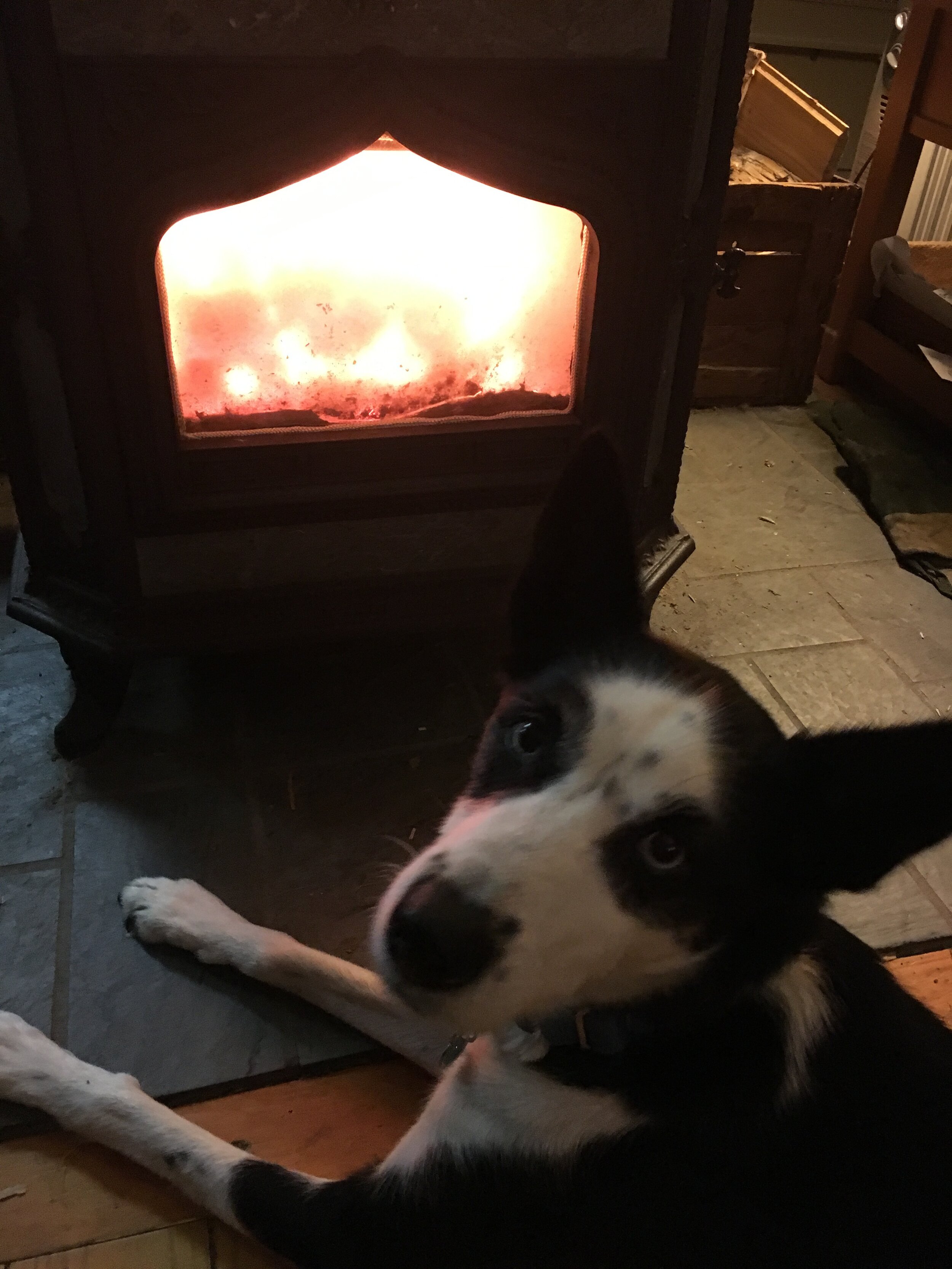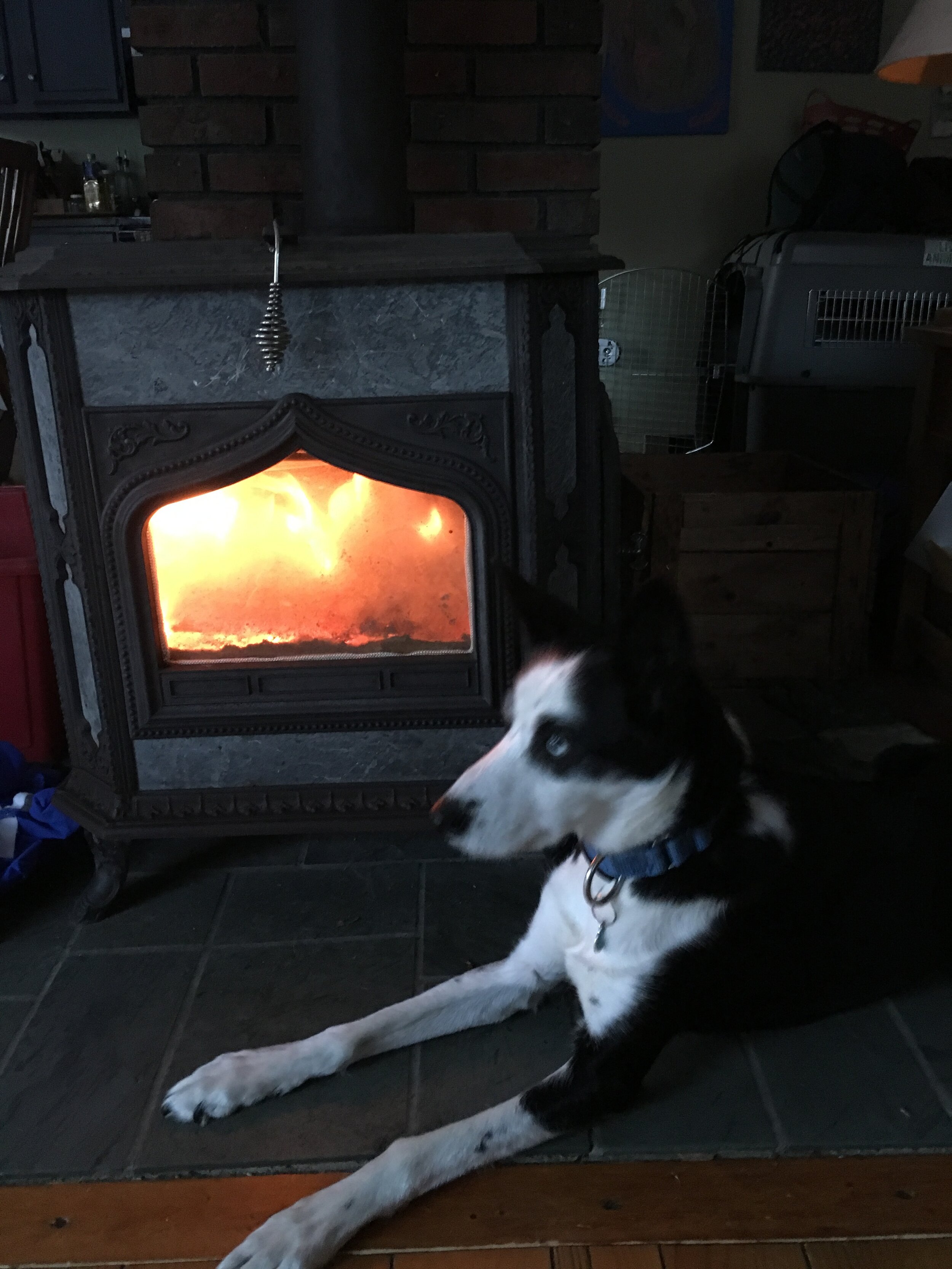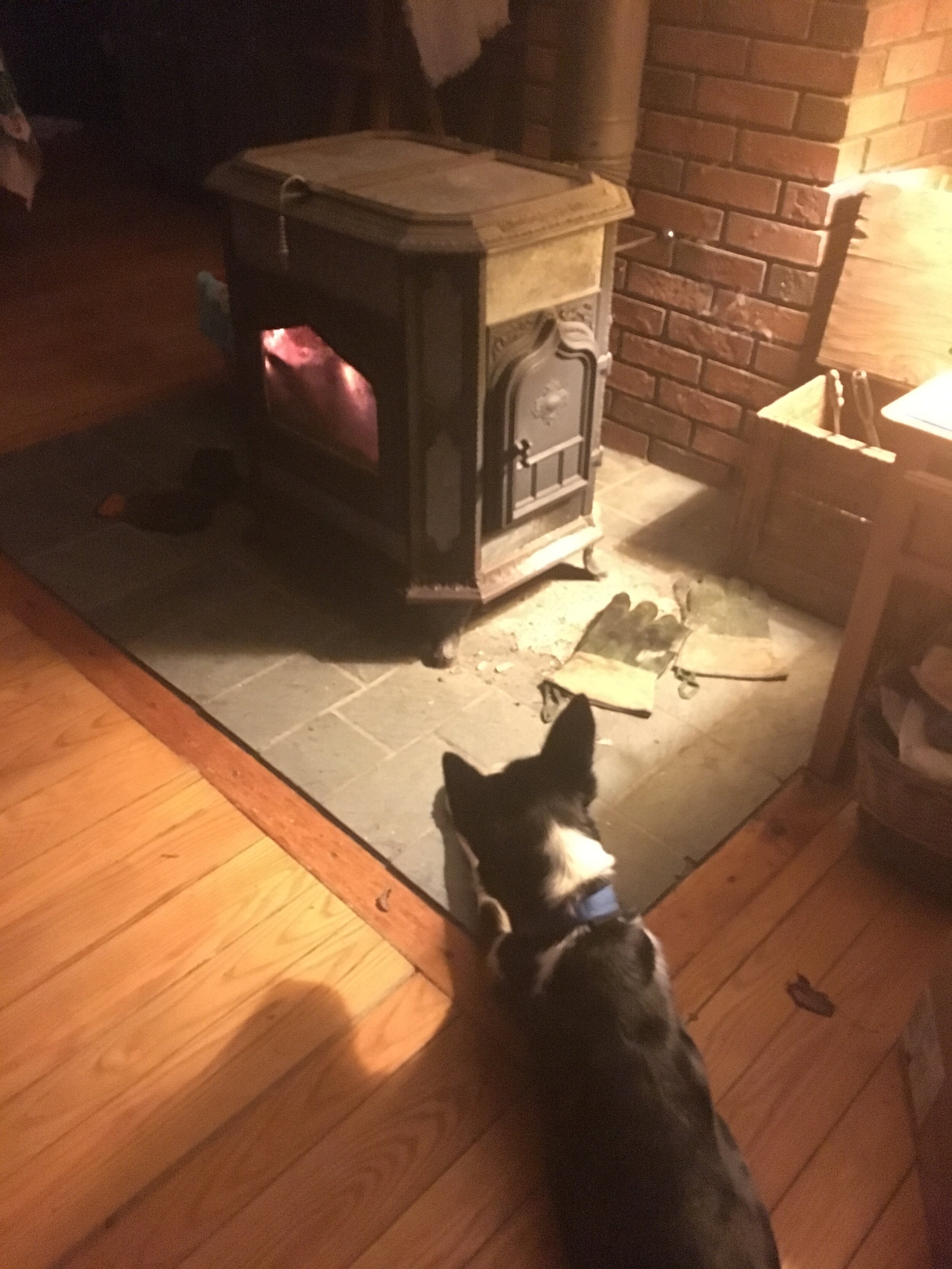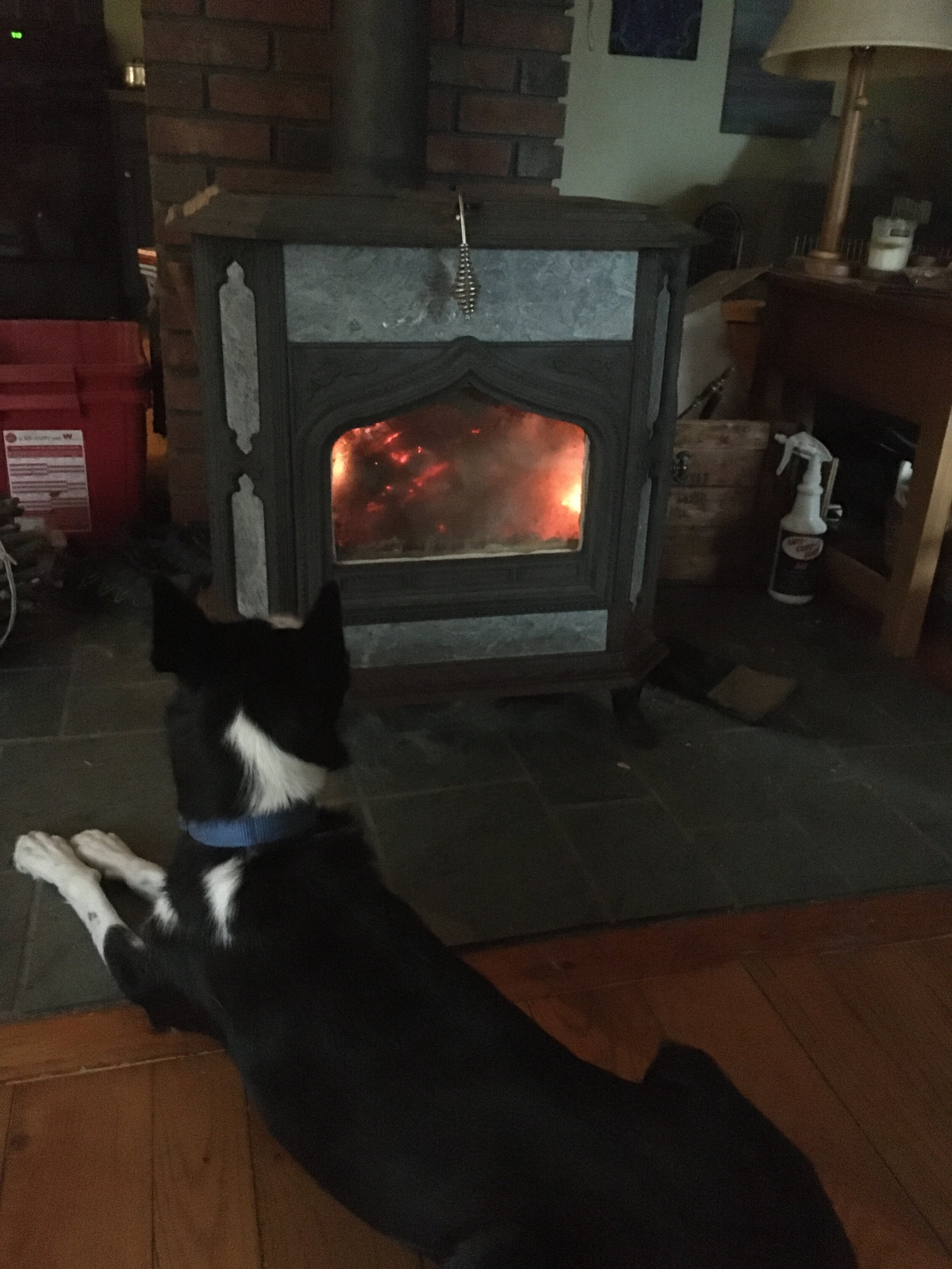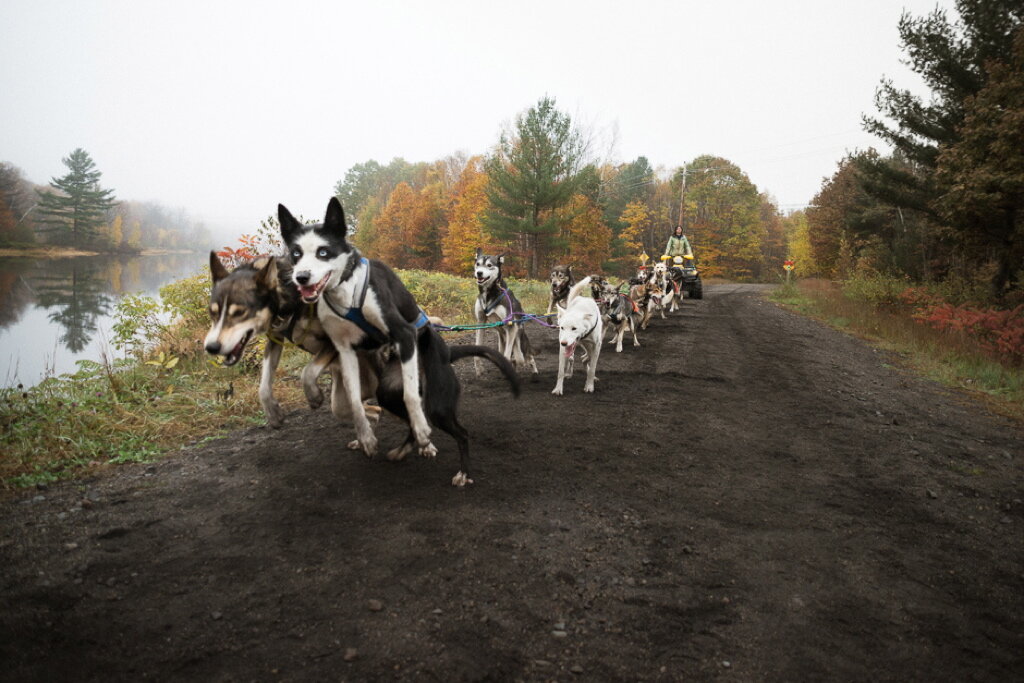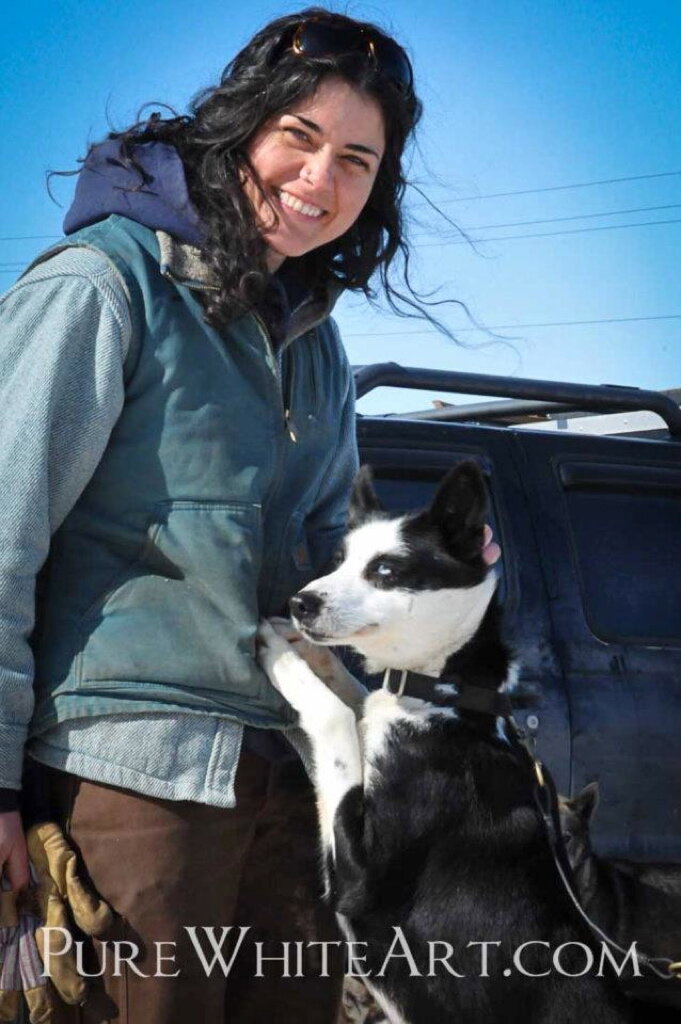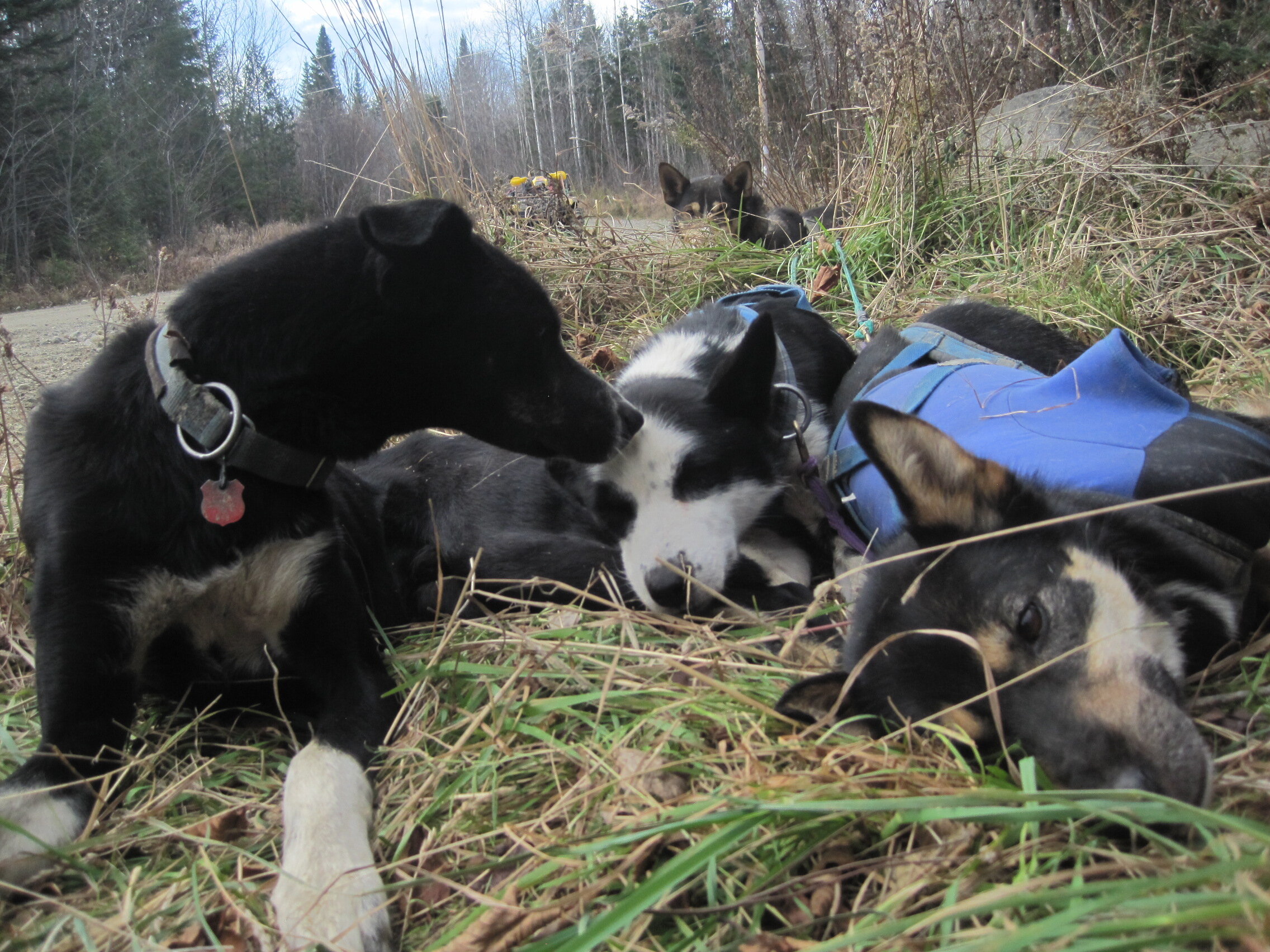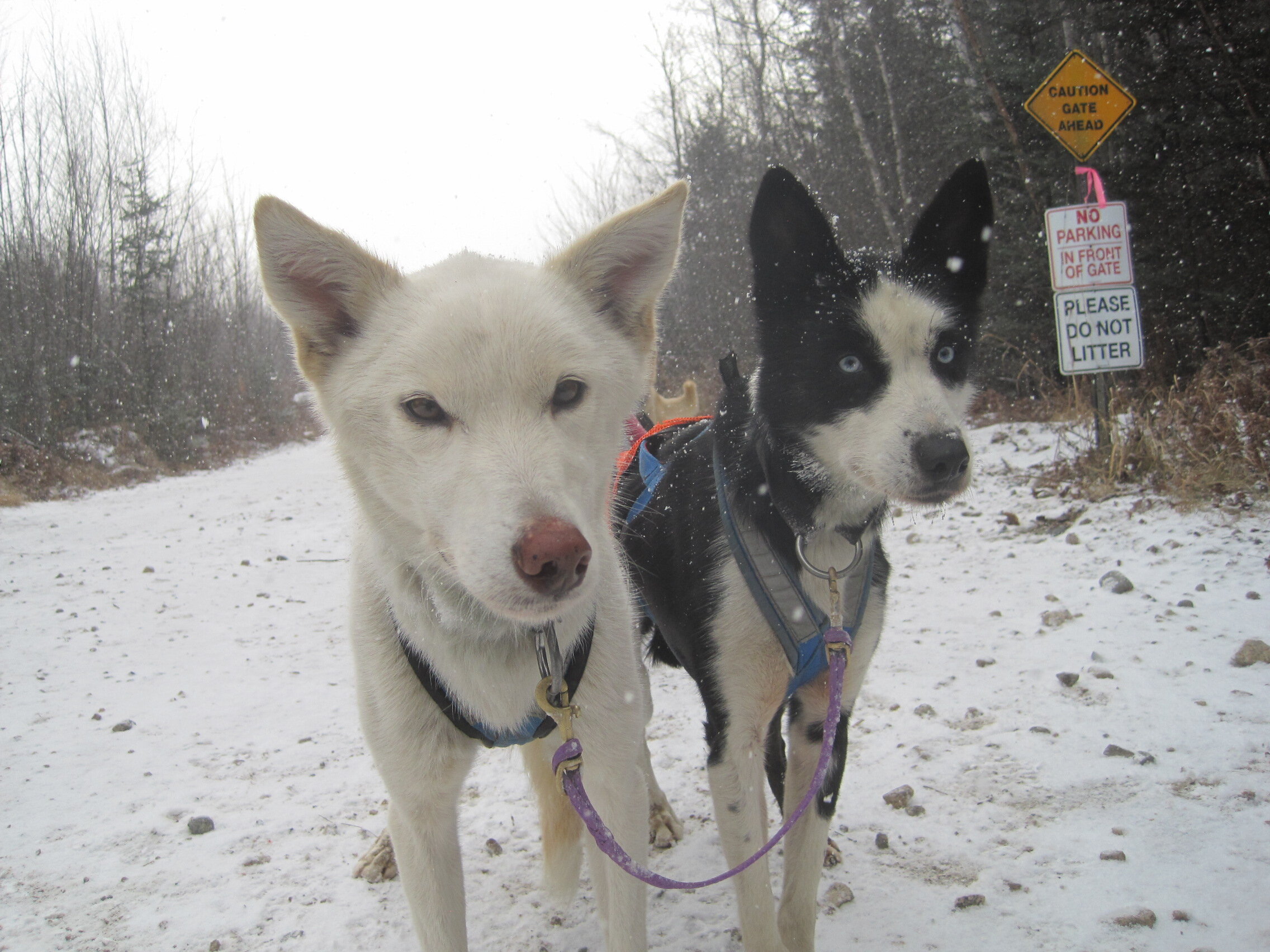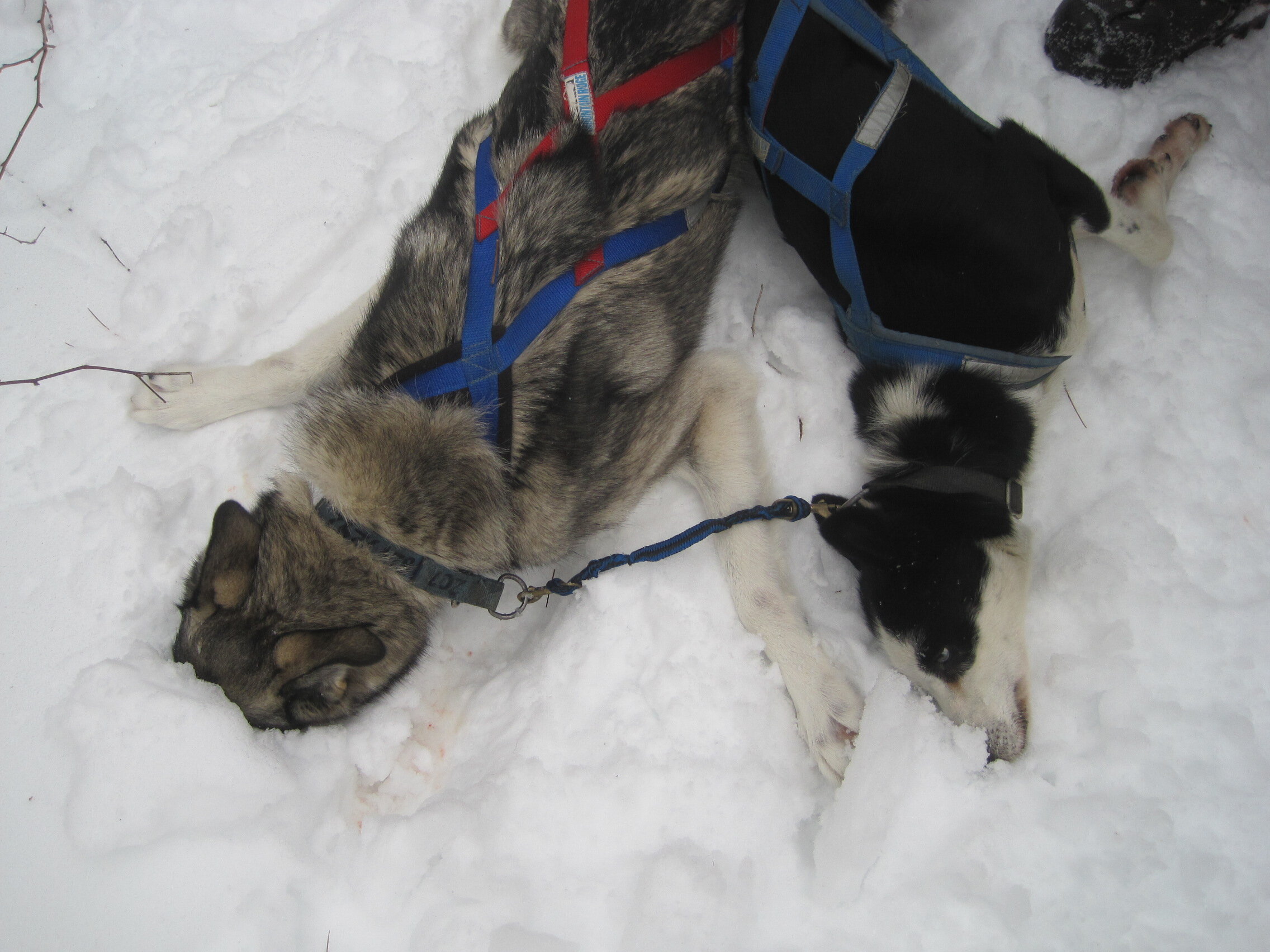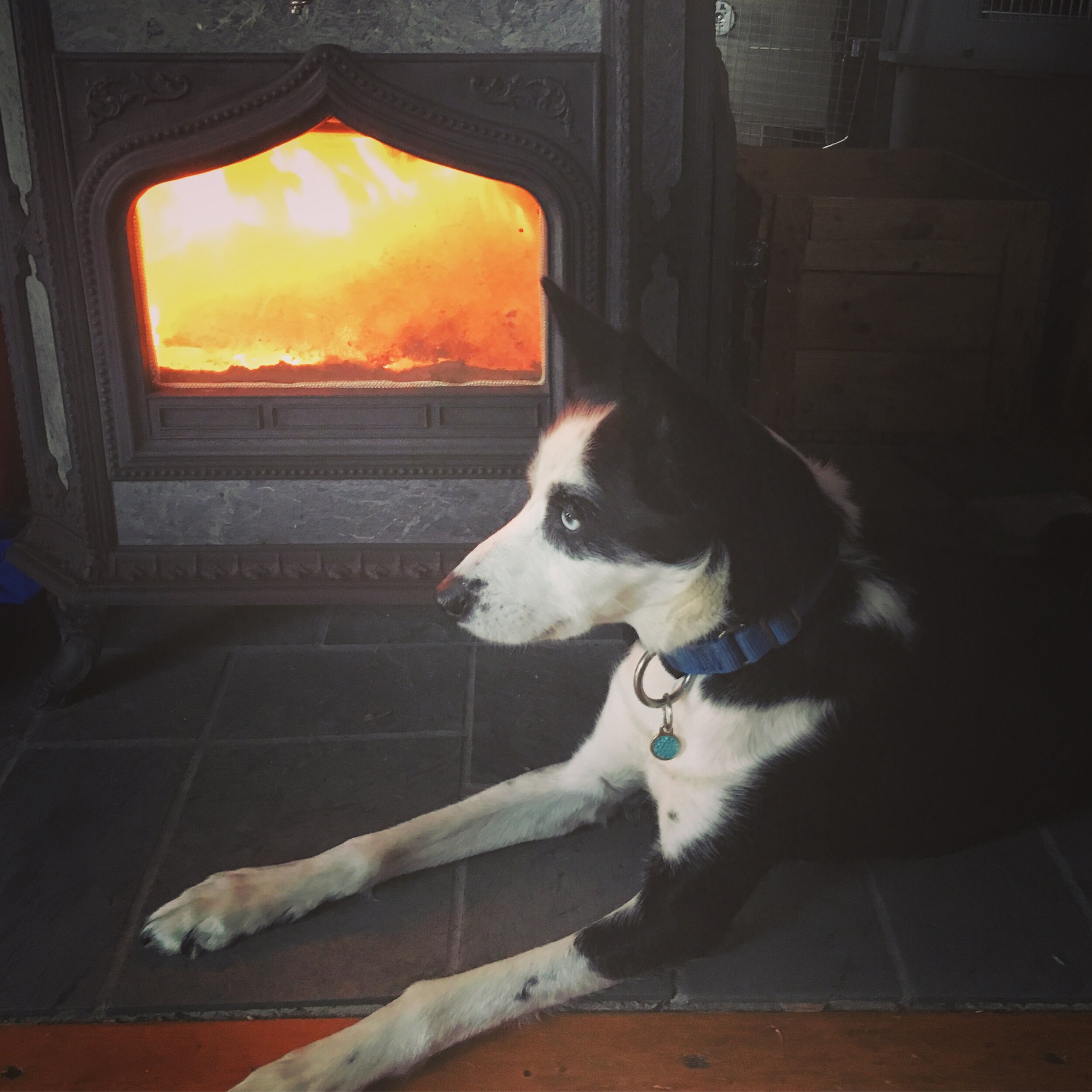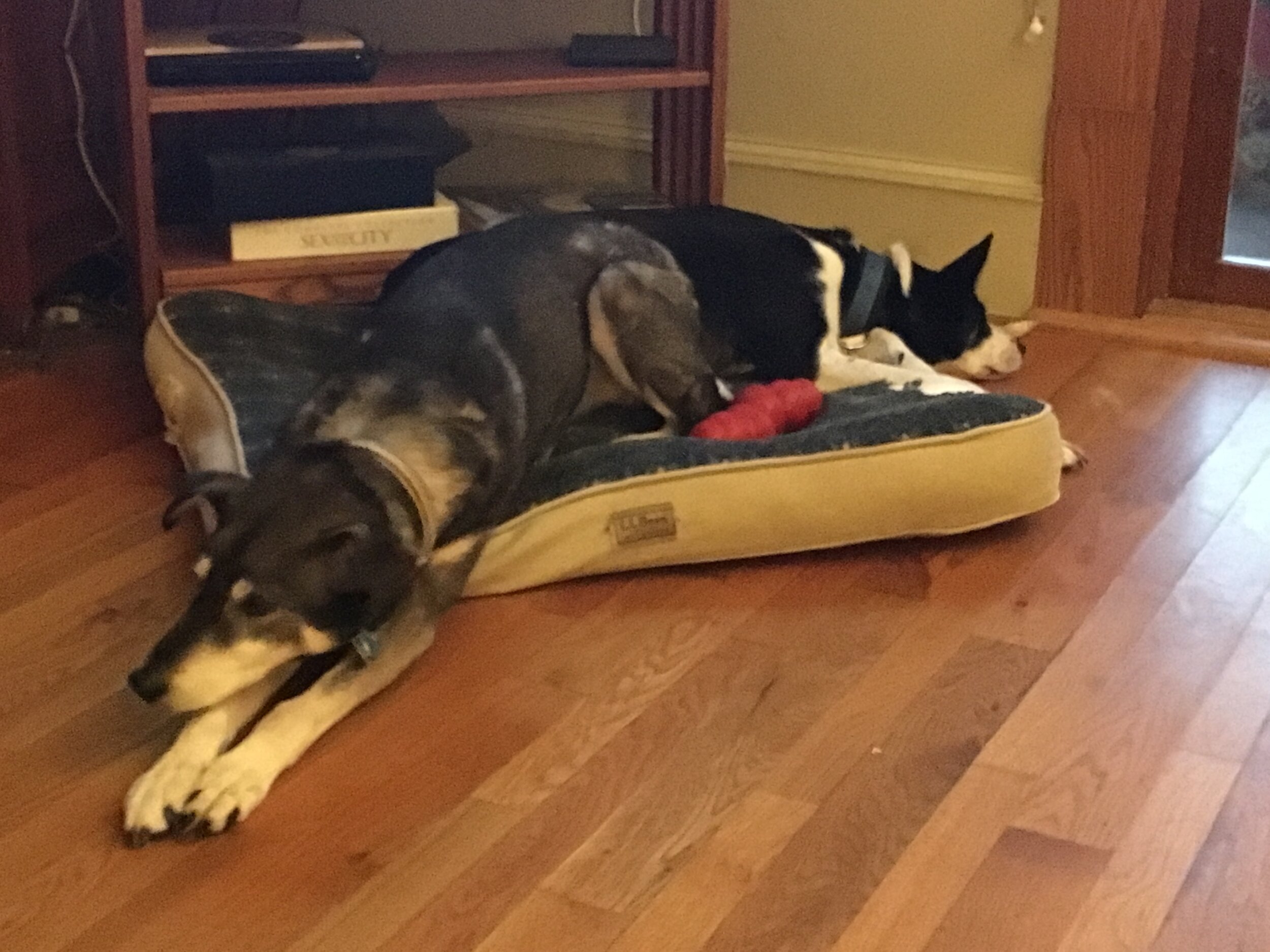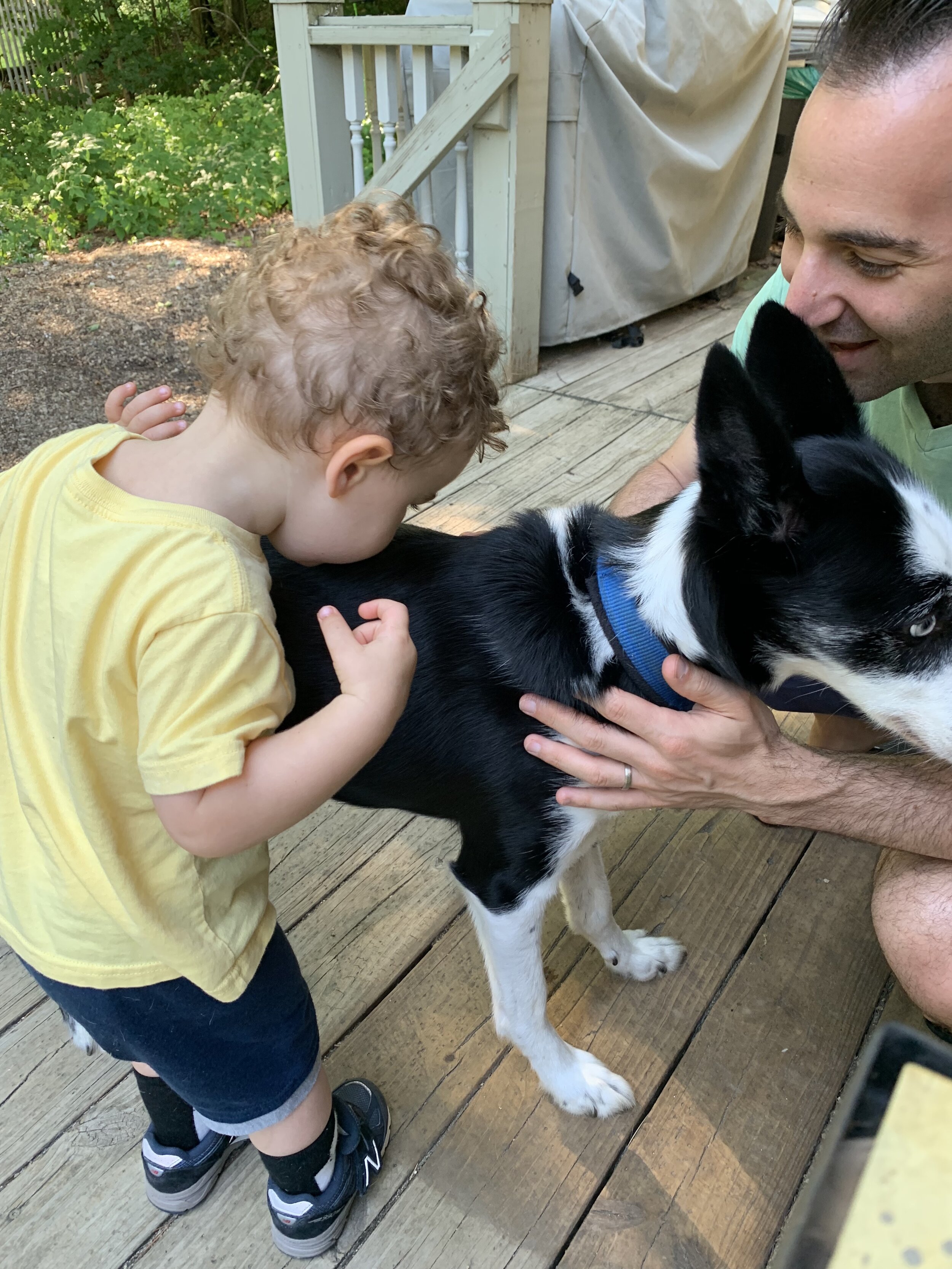Grenade
2006-11/3/2020
With me since February 2012.
The curve of the back, the single foot on the ground, bright blue eyes alight with drive.
Grenade.
Grenade, portrait by Bruce Letters in 2013, 3Sixty photo
It was my first year training my own team, a rag-tag bunch of dogs given to me by a friend. I didn’t know who to buy dogs from. I didn’t know how to actually train a team of athletes, how to build their athleticism. I ran the dogs using a lightweight small old ATV frame on a railbed, four or five miles at a time. I had never run more than 7 miles, I didn’t know to track how many miles a team has run in a season. The enormity of what I didn’t know didn’t stop me. The dogs pulled forward.
But I needed a lead dog.
Grenade came in a burst of energy, a firecracker at the front of the team. The first dog I paid good money for, as I scoured multiple online musher pages for lead dogs for sale. And while you aren’t supposed to pick dogs based on color of coat or size of ears, I fell in love with her stark black and white mask, her freckles on her nose, her smile, and her bright blue eyes.
Grenade’s portrait, photo by Bruce Luetters.
Grenade came from Amelie Aubut, and Andre Longchamps, but before that her story is unknown as they bought her as an adult. The origin of her name, her actual bloodlines, has always been a mystery. She was identified as Quebec hound and Swingley, and it was many years later that my friend Christine suggested that she likely had some bloodlines from Stephane Duplessis. I started seeing the similarities between her and Oriana, and with Stephane’s team of black-masked-blue-eyed dogs, I settled on that as her background.
But yet that mystery and aura, that aloof beauty and Quebec-ness, that was Grenade. Her name remained a mysterious double-entendre. French for ‘pomegranate’, and English for the weapon, I decided she was not named for one or the other, but the combination of both: a sweet exploding device.
Grenade and Lucy in lead in the Jericho 2013 race, 17 miles in 1hr19 minutes.
The exploding device reference was real. Speed was her strength and her gift to the team. Grenade led some of our fastest races. Maybe I was bolder and more comfortable at high speeds when I was younger, but the fastest race she led was 17 hilly miles in 1hr19 minutes in 2013. I wore canvas workpants and leather gloves, driving the old partially-broken sled I bought secondhand. I never held her back, and she blitzed forward.
Grenade had no sense of direction, or at least no interest in taking commands from her musher, and I usually had to pair her with a leader who could take commands. Throughout the years that was Lucy, Brynn, Bayley, and Wembley, leaders with directional sense who simply fed off Grenade’s confidence and need for speed. When Wembley was first put in lead, it was Grenade she was paired with. Perhaps a little bit of Grenade’s love of speed helped get Wembley into that leadership position, as Wembley also had a need for speed.
Grenade’s leadership defined the first few years of racing, from the first Can Am race to the shift into longer distances. A competitive dog, Grenade loved racing but had a hard time holding onto the point of what a long race is. She didn’t have the mindset. Grenade was in lead for my first Can Am 250, that underprepared and mismatched team. Grenade led us back to Maibec for our scratch, after we had camped on the trail, having led the majority of the race up until that point. After that race, I didn’t ask her to lead for distance, only for speed.
In the team, I knew it would be a good run when Grenade would start barking. I’d wait for the sign, she’d shift slightly by her position on the truck, intake a breath, and then let out a test bark. Other barks always followed, building into that crescendo that would lead her into the front of the team, leaping into the air and levitating. There were runs when she was ‘meh’, and while they were usually ok they weren’t the best. Looking back, I am sure there were other things wrong at the time: a slight disruption in the teams emotions, my own emotions, or the time of day, things that I couldn’t pick up on at the time, but things that mattered to how Grenade would show up.
Grenade’s last year of racing she was in the speed teams and the fun runs. She led our speedy Stage Race team in 2015, with Wembley, edging us ahead of Peter Franke in the second leg. Photos of her from that second leg, in Milan, she looks like a tiny puppy next to the oversized dogs around her, her scant 38-pound frame leading the giants of 65 pound dogs behind her.
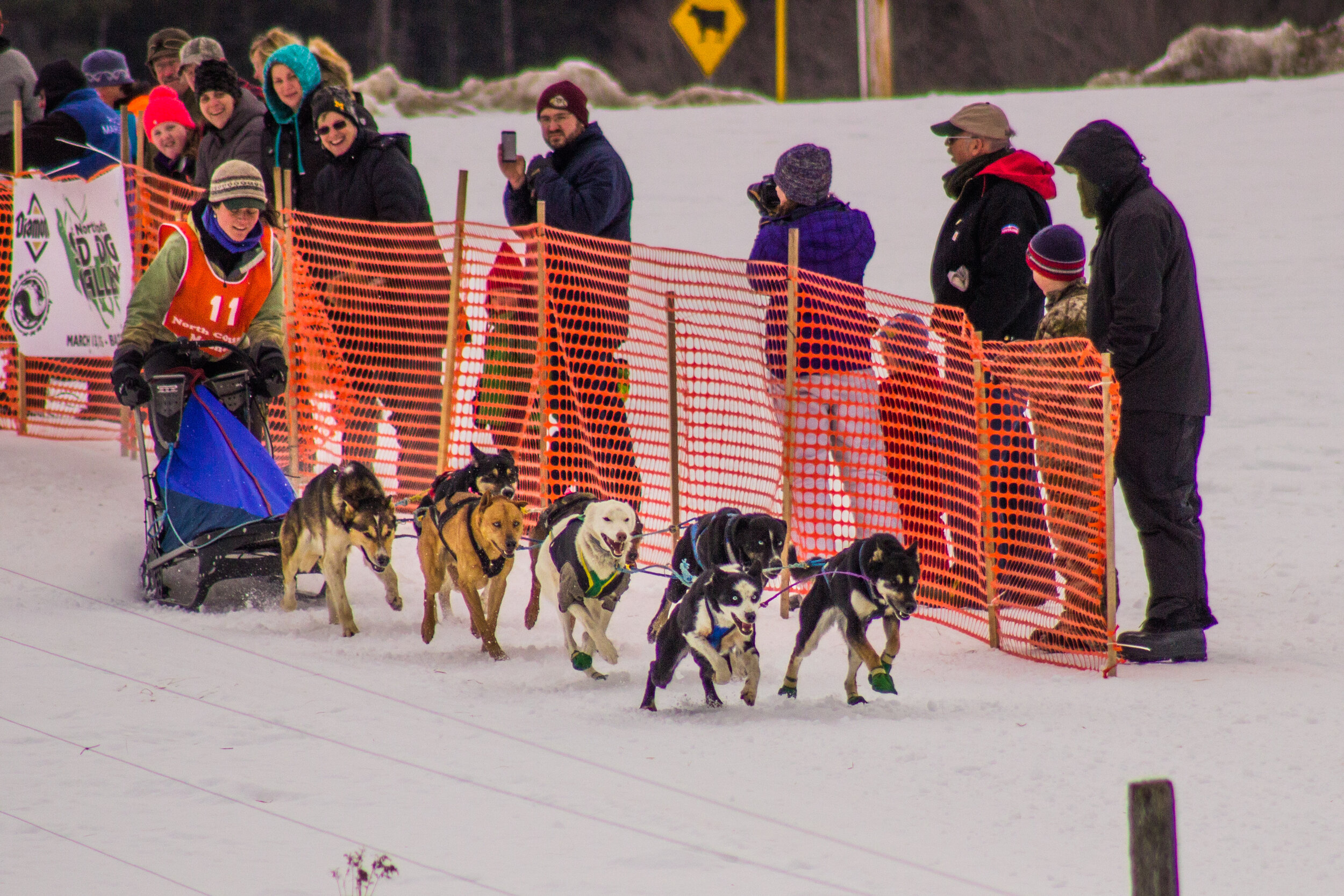
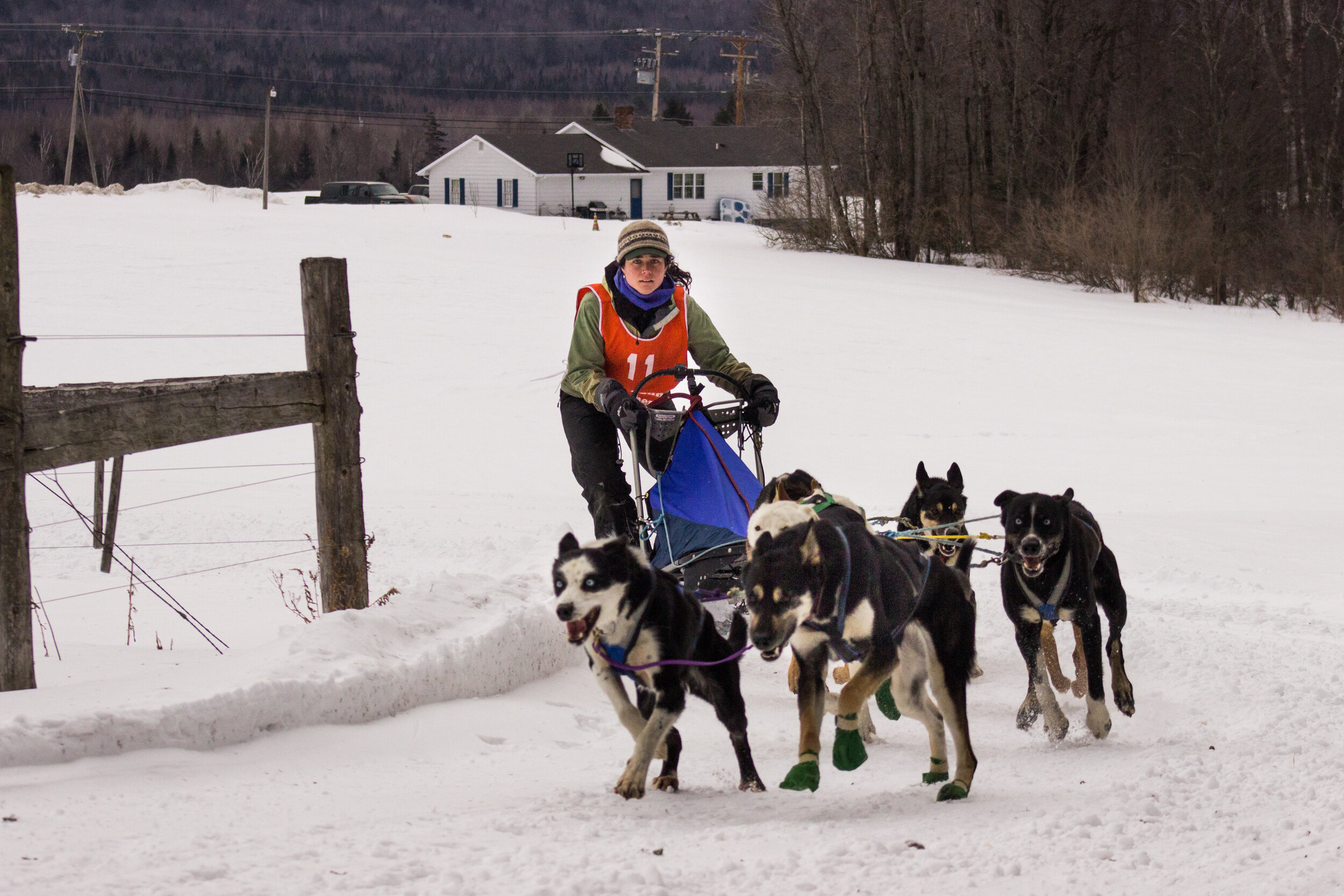
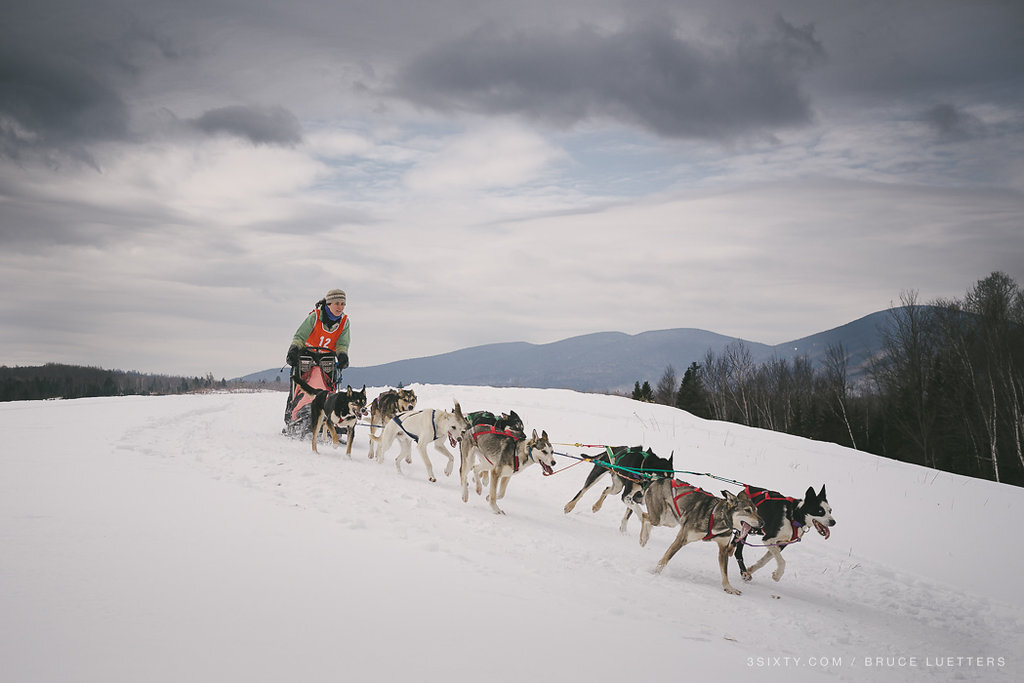
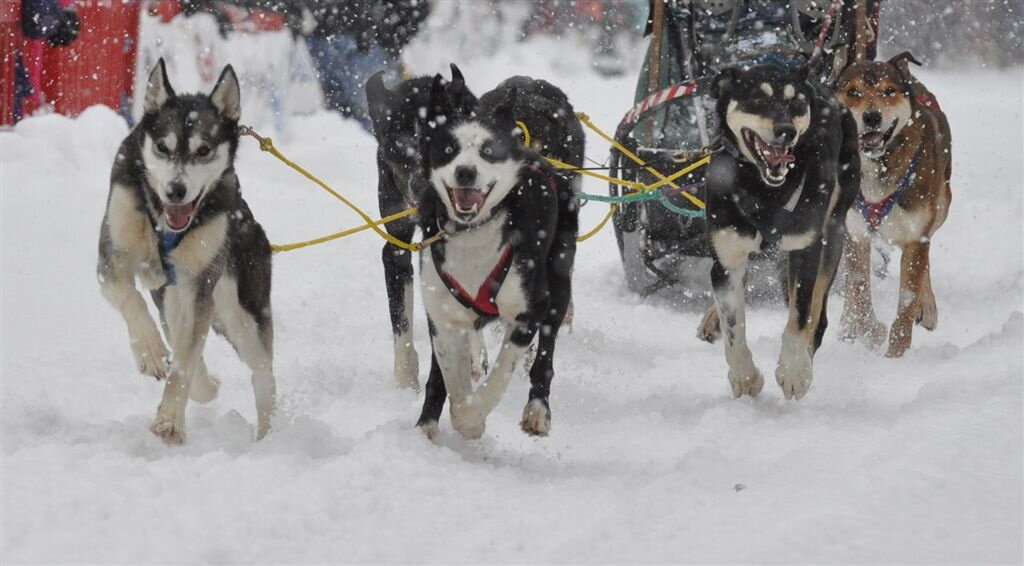
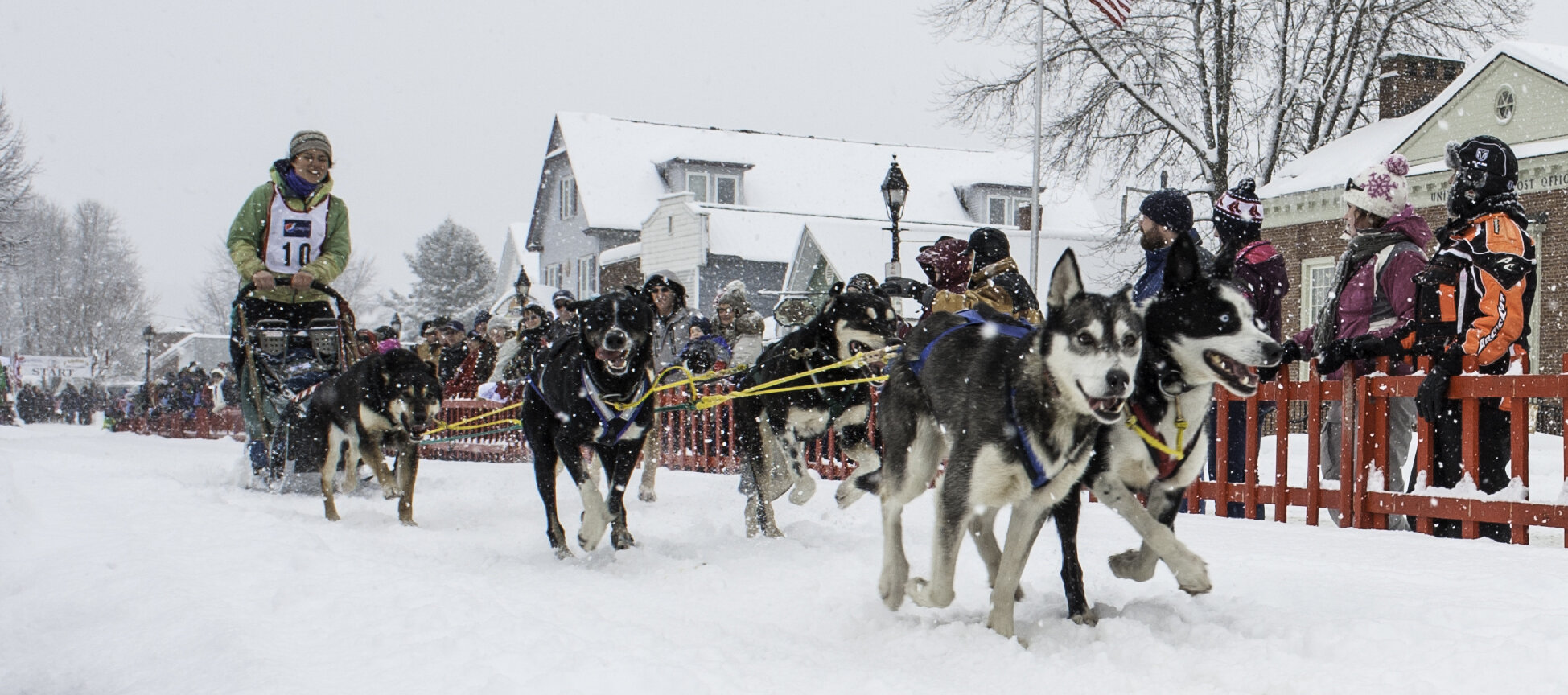
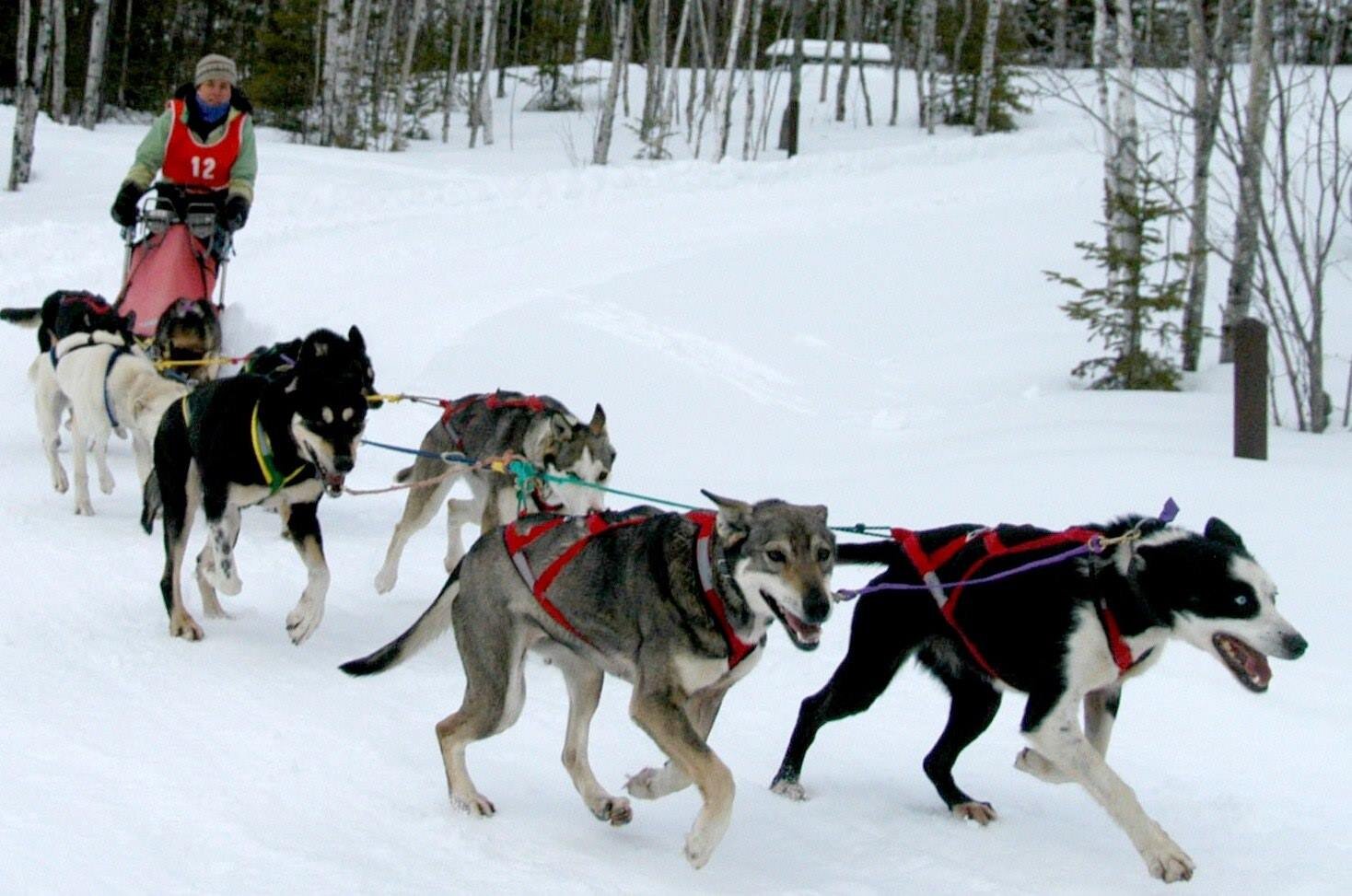
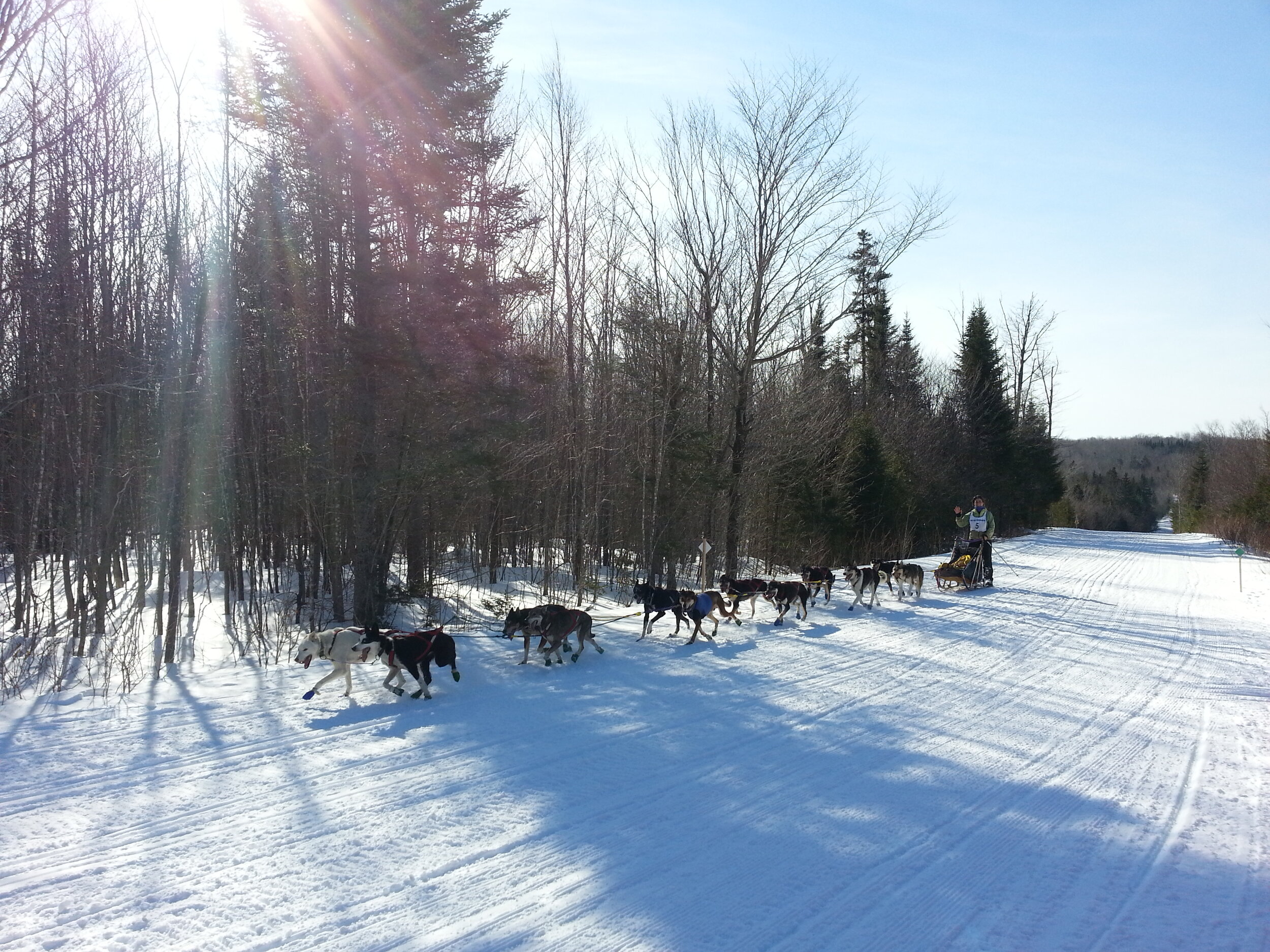
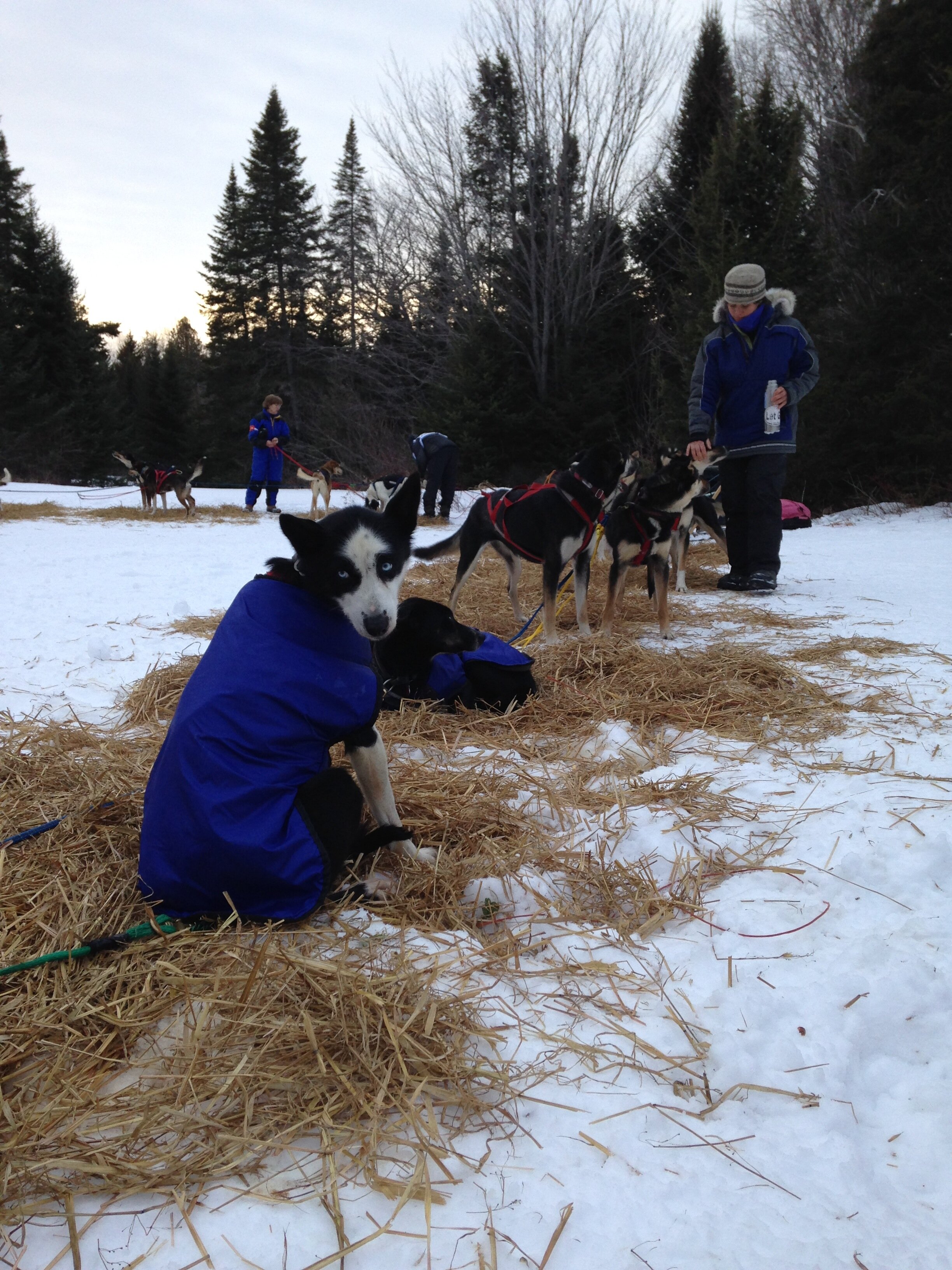
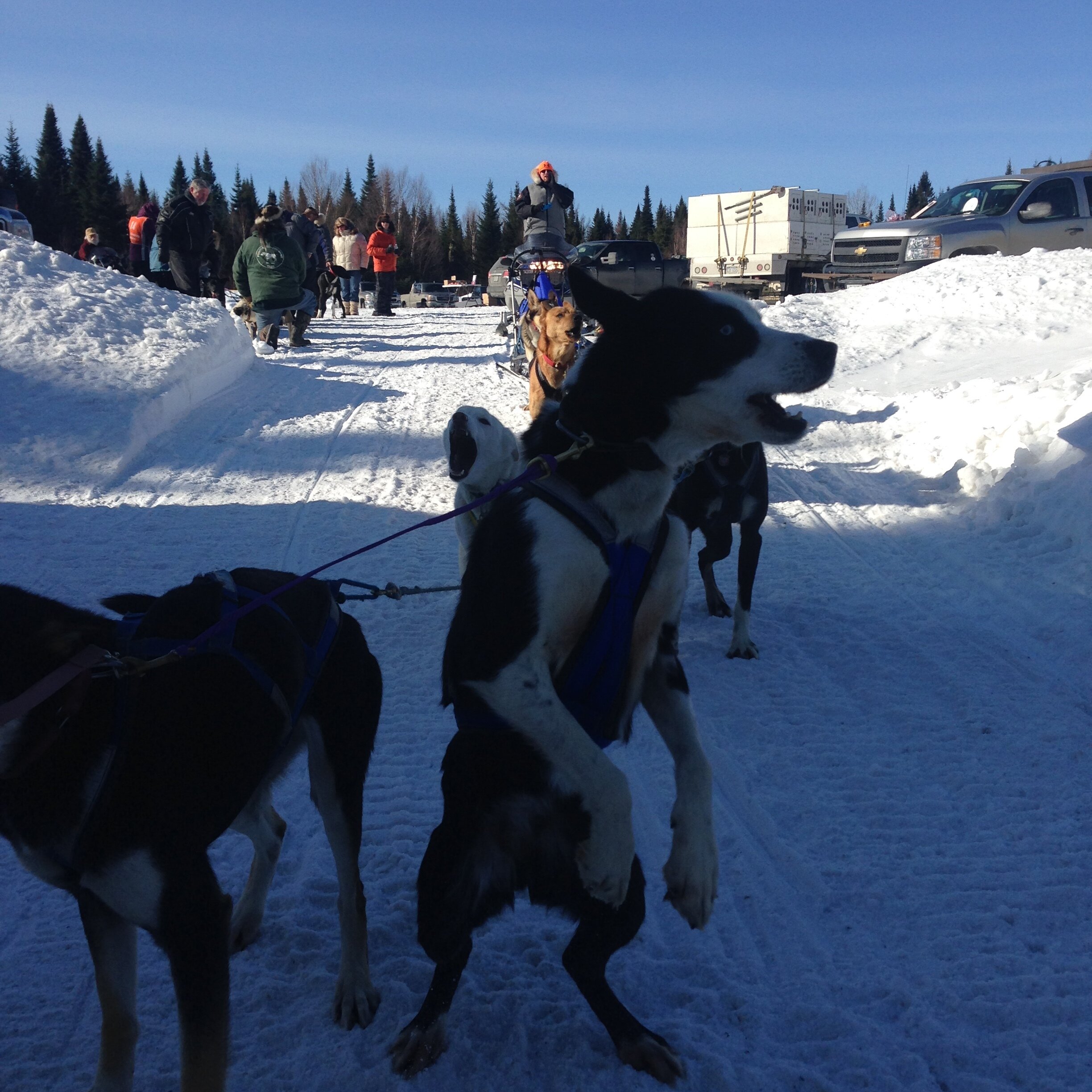
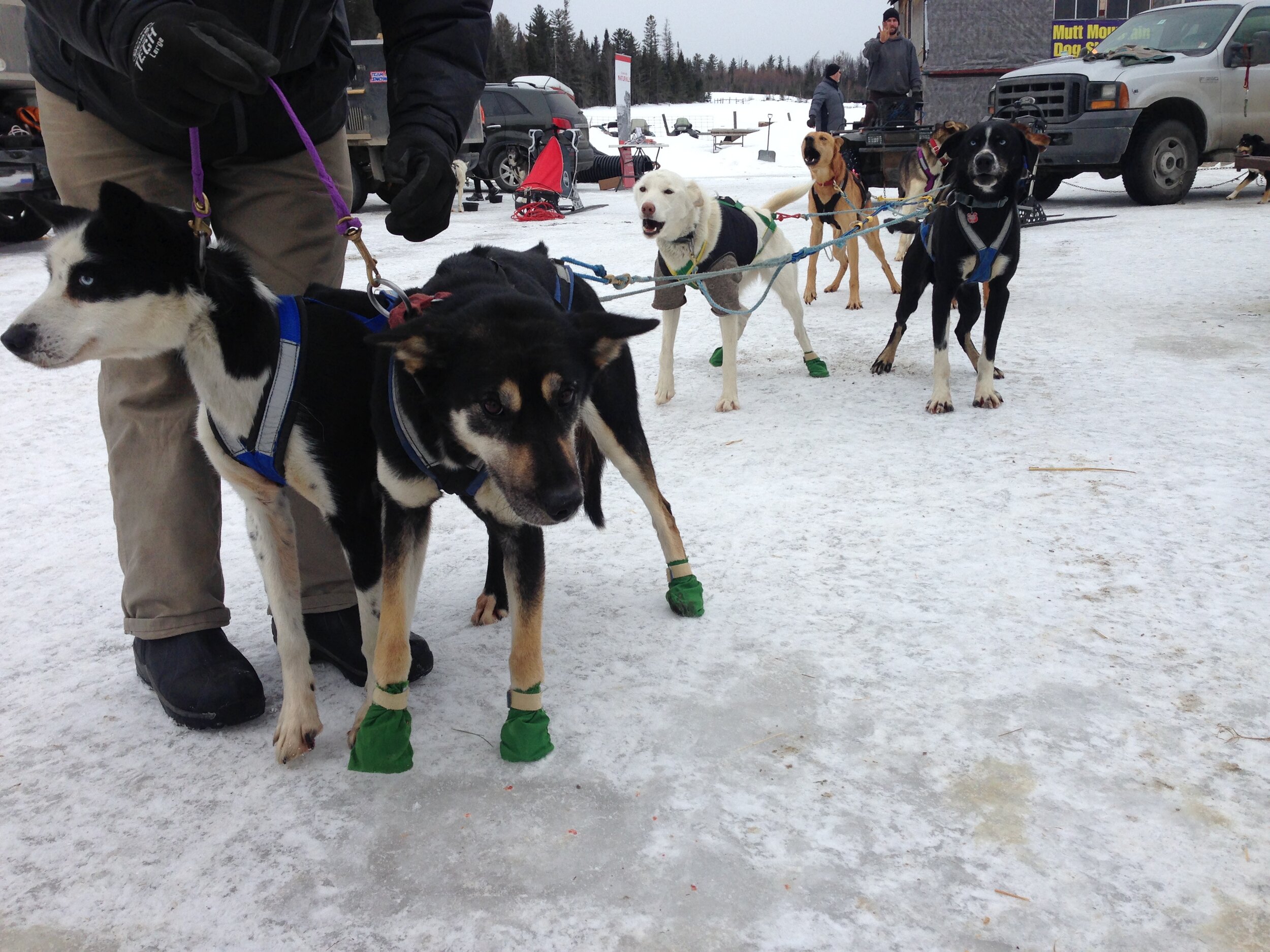
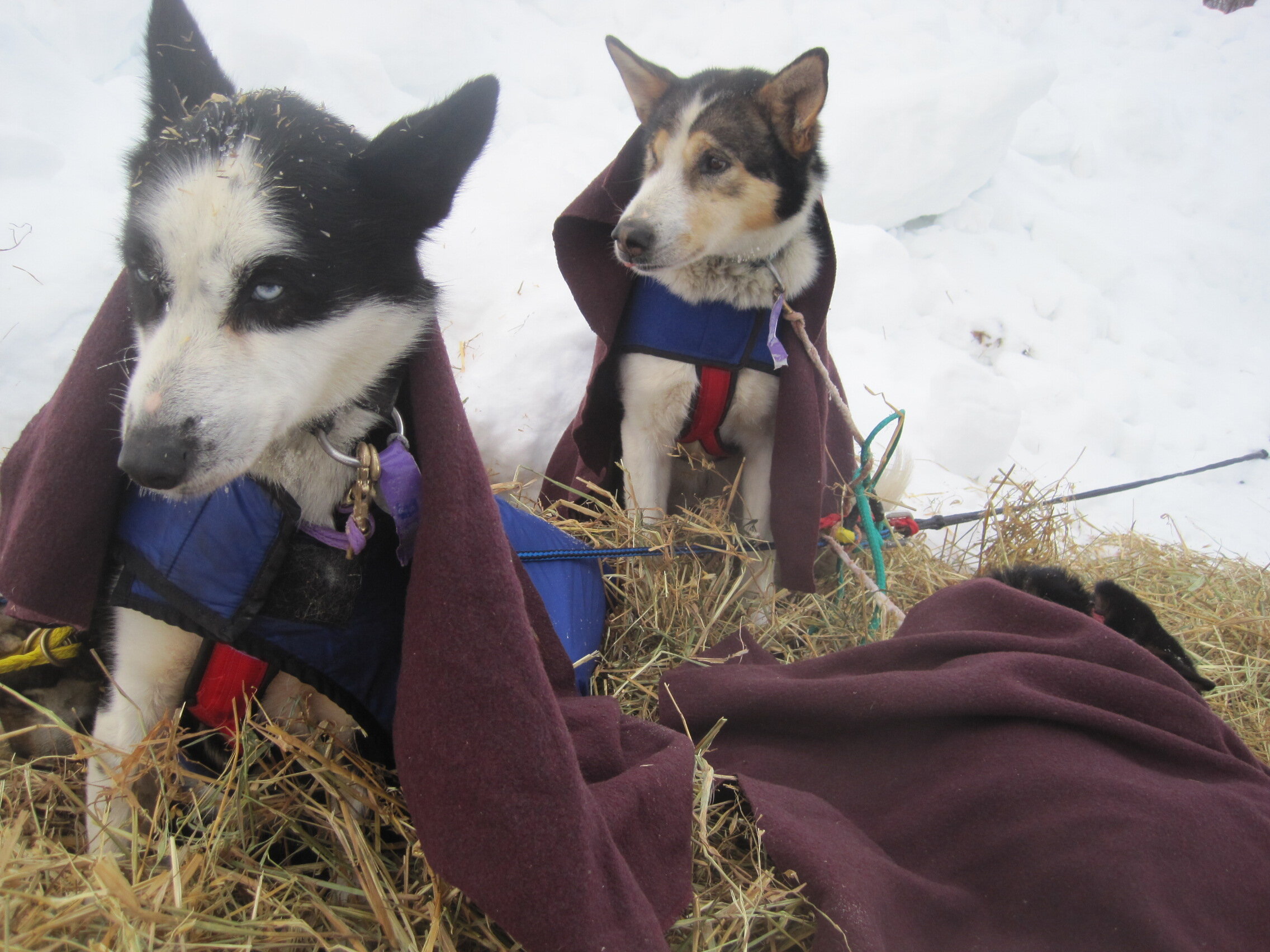
At 9 years old, in 2015 she hung up her harness but didn’t go far. Unable to truly let her go, I gave her to my partner Chuck as a dog companion, and she moved in with him, becoming a part-time city dog. There were things Grenade loved about her city life, such as the ballfield where she could zip around in off leash, play with her dog friends, and roll in goose poop. Having never lived inside before, she was immediately a perfect house dog and understood how important it was to keep her bed absolutely tidy, constantly licking and cleaning it. She at times had anxiety about some aspects of city life, such as footsteps in the apartment above her. For the first few years, Grenade would move to and from Boston, but the last few years had her 100% in Shelburne, her five years as a family pet dog overshadowing the three years on the team. Grenade stayed in the family and settled, sort of, into retirement.
I say ‘sort of’, as throughout her life as a pet dog, Grenade remained a runner. You could see it in how she marched around every afternoon, restless for movement. You could see it in her face when Chuck would let her run loose and lap around the front yard at the high speeds she loved. You could see it in her perfectly-executed movement, the fine-tuned athleticism of a racehorse. I saw it the most when she’d return to the house after Chuck had taken her for a walk, and she’d burst inside with the same intensity I’d see in the start line of races. Grenade’s soul was always on the trail.
Nurse Grenade and my nephew Sawyer. She used to clean up after him as if he was one of her puppies.
Here is the point in Grenade’s life where the story is no longer just myself and her, and also not just Chuck and her. Her retirement and moving into the house timed around when Quid died, her spunky pointy ears coming to replace Quid’s. Grenade became truly part of the family, part of the household. My sister Caroline would let her out in the mornings, and feed her breakfast. When visiting, my sister Rachel and Grenade would start the woodstove together, and Grenade’s latent maternal instinct had her cleaning up after Rachel’s son, our nephew Sawyer. Grenade loved to tease new housemates by escaping out the door almost immediately, and refusing to be caught, and it was usually up to Caroline to get her back inside.
Grenade was interested in becoming part of the family, which is important to understand. Not a particularly affectionate dog, Grenade wouldn’t march up to you with a wagging tail, but tended to observe people from a distance, keeping the couch between her and people at the front door. But for folks she was familiar with, she showed a gentle kindness, a thoughtfulness, and a caring sense of love. This was projected directly onto nephew Sawyer, whom she adopted as if he was one of her puppies. His cries would bring her running, even over the phone, and she was constantly sniffing and licking at and around him, and was always a shadow for him. Eventually he reached an age at which Grenade decided she didn’t need to babysit him anymore, and showed a few more eye rolls in our direction when Sawyer would try to play with her. Grenade loved her family.
I’ll say this also: Grenade loved that wood stove. If she spotted anyone starting it, the creak of the stove door would bring her right to your side. Once it was appropriately roaring, she’d sit in sphinx pose, facing the flames.
Her adaptation to the house as home can be tracked in how she related to the dogyard, to the dogs, and to her humans. At first, she used to accompany Chuck into the dogyard when I’d ask him to change out straw before the team would return, and she’d trot around the empty yard, trying out the fresh straw. She played with Oriana and Paolo, had some interest in Victor and Bonnie, but less so in the Lost litter. As ‘nurse Grenade,’ she’d check out each dog once they came into the house, sniffing nose to tail, her diplomacy and neutrality earning the trust of the dogs immediately. In more recent years, she barely noticed the dogs out back, more interested in napping in the sunshine and taking short walks with Plexico.
Grenade reunited with her Chuck, after he came back from a two-week trip in 2016.
Grenade truly did become Chuck’s dog. She loved him, and he defined her world. The sound of his footsteps upstairs would send her into a marching frenzy, excited he was awake, as she’d pace in laps around the kitchen until she saw him in the doorway. On Friday nights, she’d sit in her chair and stare at the door, waiting for Chuck to return from Boston. When he moved into his new house she would tolerate me taking her out in the morning, and then about an hour or so later would march over and lie down outside the bedroom door, whining for Chuck to wake up. It took almost five years, but Chuck did manage to train her to beg for food at the kitchen table. She acquired an array of Chuck-names: Gibbles, Chipper, Miss Moop, Chippy, Geebs, Trip, Twippa, Killer Mike, Hanky (technically a nickname from Sawyer) and the one that stuck: GB (eventually becoming the British flag in our texts to each other). Unlike other dogs I’ve written about, dogs for which I’ve formed an unshakable bond, Grenade was in relationship with our whole family, and was bonded the most with her man: Chuck.
Never injured, never sick, one abrupt day in August, Grenade started limping, a shift in her movement that was barely perceptible. Over the weeks, by late September she was stumbling, by October she was a tripod. Chuck brought her to endless vet visits and assessments, each time resulting in more questions and no answers: it wasn’t cancer, it wasn’t neurological, it wasn’t lyme, it wasn’t a torn ACL or a soas muscle. A physically perfect dog, the best we could figure out is that she had a small tweak, something so minor that had she been younger she would have healed, but at 14 years old that one tweak threw her muscular system into cascading failures. Her tail no longer wagged but hung limply, her left leg started dragging on the floor. A dog that would always go to bed early and sleep through the night, she was restless until late and then waking throughout the night, 2 a.m. and 3 a.m., despite a cocktail of pain medications and holistic remedies. Still a runner, still an athlete, she tried to run through her pain, tried to walk it off. Eventually, she struggled to stand, her left leg curled up against her belly. Her blue eyes stopped sparkling. It was time.
Every dog goes out in their own way, death not necessarily some final expression of their personality but part of who they are all the same. Grenade just faded, and she needed us for the first time, she needed her Chuck, who reorganized his house and his day to try to help her. In her last few days, Chuck gave her everything she needed, hot dogs and roaring fires, short walks around the front yard. Happy and relaxed, as we waited outside the vet she lay content in the backseat, her little black nose sniffed the air coming in through the open window, her ears peaked forward. She was smiling. She fell asleep in Chuck’s arms, pure love the last thing she experienced.
In the days following, Grenade’s presence lingered in sound and movement. I kept hearing her toenails clicking on the floor, the echo of her ears flapping as she shook her head, her pouncing and rolling, her whines and huffs. I couldn’t see her, instead just seeing the place where she used to be. As a runner, I’m not surprised that her presence moves too quickly for me to see her. She was so fast.
Thank you, Grenade. For teaching me to go faster.


